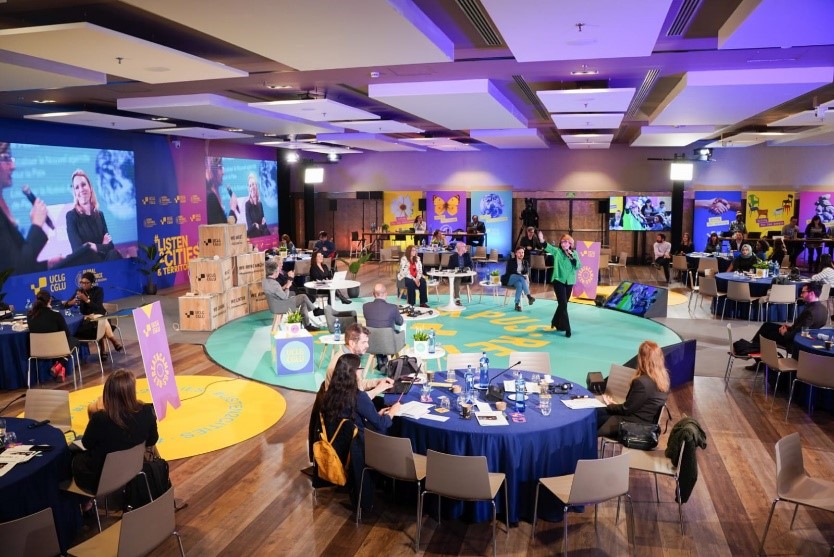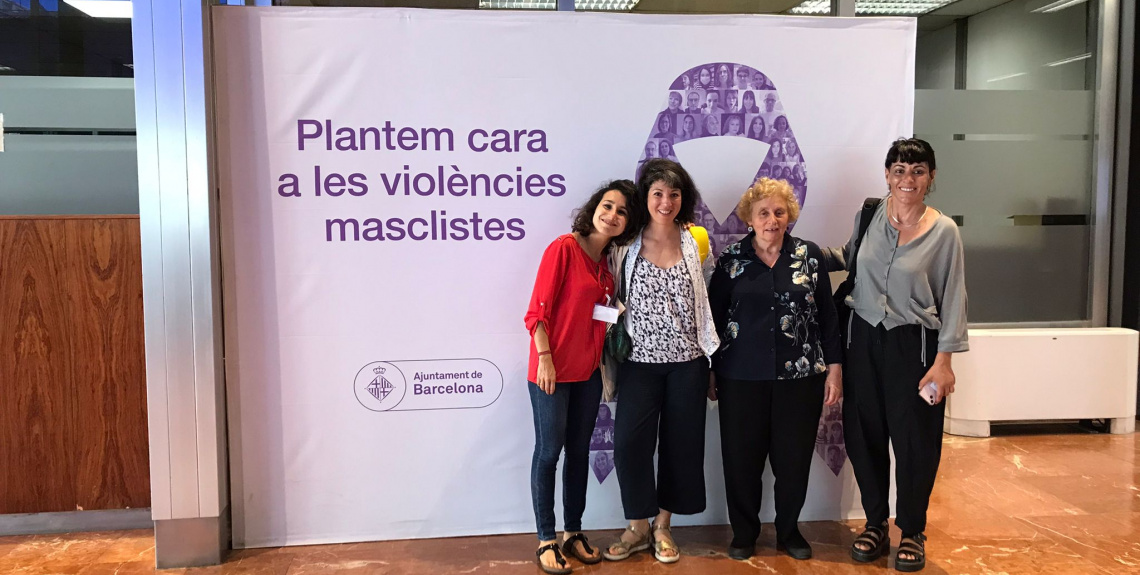International Observatory on Violence against Women meets Cities for Peace
The coordinator of the International Observatory on Violence Against Women attended the 4th Forum of Cities and Territories for Peace held in Bogotá in June.
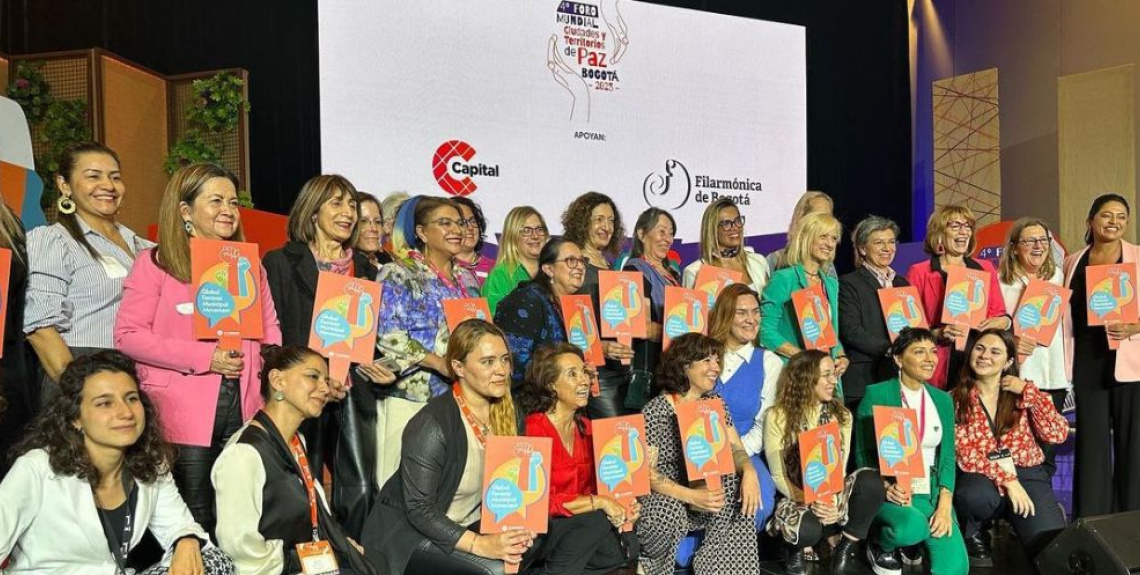


The event was co-organised by the City of Bogotá, the Forum of Mayors and Elected Women of Ibero-America and UCLG, a partner in the “Territories protecting women victims of violence” programme.
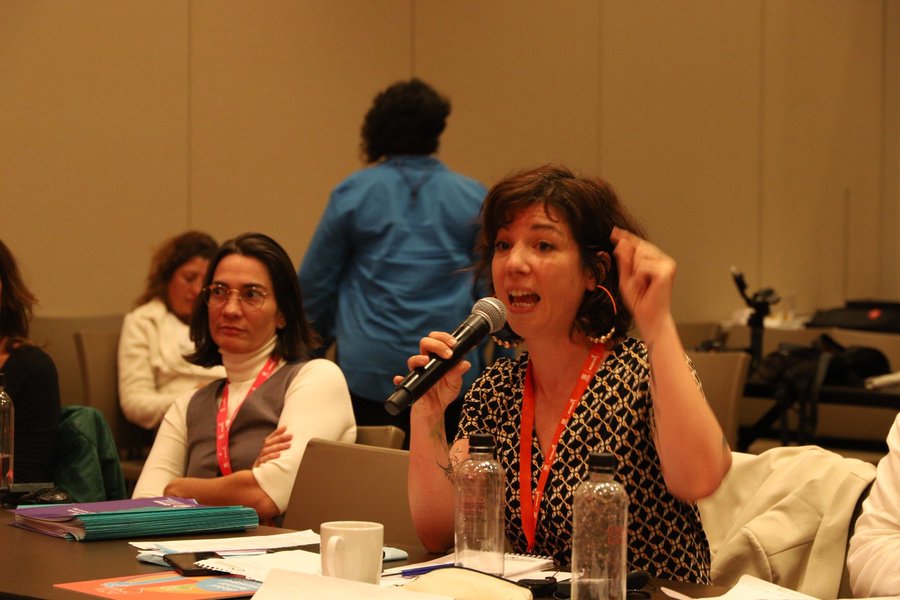

The coordinator of the International Observatory on Violence against Women attended the 4th Forum of Cities and Territories for Peace, held in Bogotá in June.
The role of women as leaders in social peace policies was one of the central themes of the discussions. The Forum proposed to open up the debates on peace to the concepts of resilient territories in response to climate change, social justice in response to inequalities, and the defence of local democracy in response to authoritarian tensions within States. In this context, policies to fight violence against women are key to building a democratic and inclusive society. They are a tool both for eliminating one of the main violations of human rights – gender inequality – and for reducing the impunity that allows violence in our societies.
The International Observatory took part in a laboratory on “Policies to eliminate systematic violence against women” and “Feminist municipalism” with 11 women leaders from Latin America. The discussions were moderated by international experts Ana Falú, former Regional Director of UN Women, and Reem Alsalem, UN Special Rapporteur on violence against women and girls.
The discussion on feminist municipalism called for a redefinition of political priorities by placing women at the heart of decision-making. This “4th transformation“, as Clara Brugada, Mayor of Iztapalapa, calls it, is a democratisation involving women that changes the centralisation of power and social and political priorities. These are new territories “where life is at the centre”, as Silvana Pissano, Mayor of Municipio B Montevideo, explained, “cities that take care” of women but also of all social groups, especially the most marginalised. Feminist municipalism responds to the issue of violence against women in a comprehensive way by structuring a feminist economy, redesigning public space, valuing the invisible work of “care“, giving women back their free time so that they can become autonomous, and including the ecological issue in the management of the city.
Networking is becoming an essential step in facilitating the implementation of these policies. It enables practices to be exchanged, but also solidarity in the face of the sexist attacks that women politicians are the target of on a daily basis in real life or online.
One of the biggest challenges of these local policies is to tackle cultural representations. This means knowing how to create services where there is not yet an explicit demand, and stimulating it in order to transform patriarchal patterns.The city of Bogotá has taken up this challenge with the Manzana del cuidado, a comprehensive programme designed to empower women in the face of structural inequalities linked to the gendered division of tasks. The Manzana del Cuidado are community centres that bring together a number of spaces dedicated to women, where qualified staff can look after the dependents they care for (children, disabled relatives, the elderly) while they carry out activities for themselves, such as going back to school, training, wellness activities and rest.
Local governments have a wide range of responsibilities in the fight against violence against women, from prevention to care, including sexual and reproductive health through health centres, as advocated by the Mayor of Quilmes, Maya Mendoza (Argentina). Investing in economic integration programmes is also a challenge that needs to be tackled at local level to give victims the means to leave their violent partners.
The work of the International Observatory is a tool for linking all these initiatives. It provides a space for the emergence of a collective of local governments with a range of solutions and for relaying common demands to international bodies. The laboratory organised by UCLG helped to raise the profile of the work of the Seine-Saint-Denis department among Ibero-American elected representatives and to publicise the global network project. The discussions provided an opportunity to outline avenues for advocacy with the help of UN experts.
The International Observatory on Violence against Women also met with the Director of the Department for the Elimination of Violence against Women of the City of Bogotá, and the cooperation officer of the French Embassy.
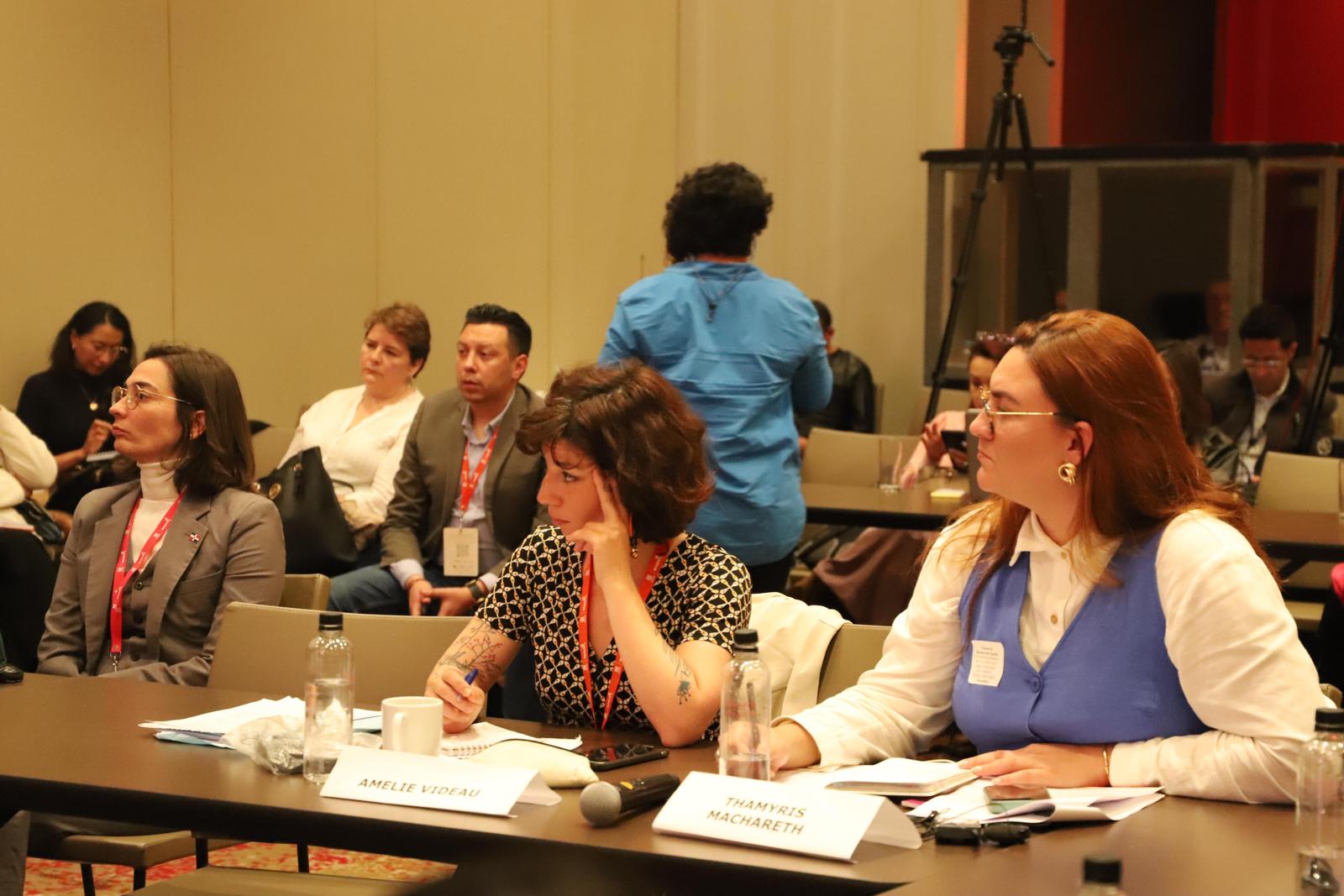

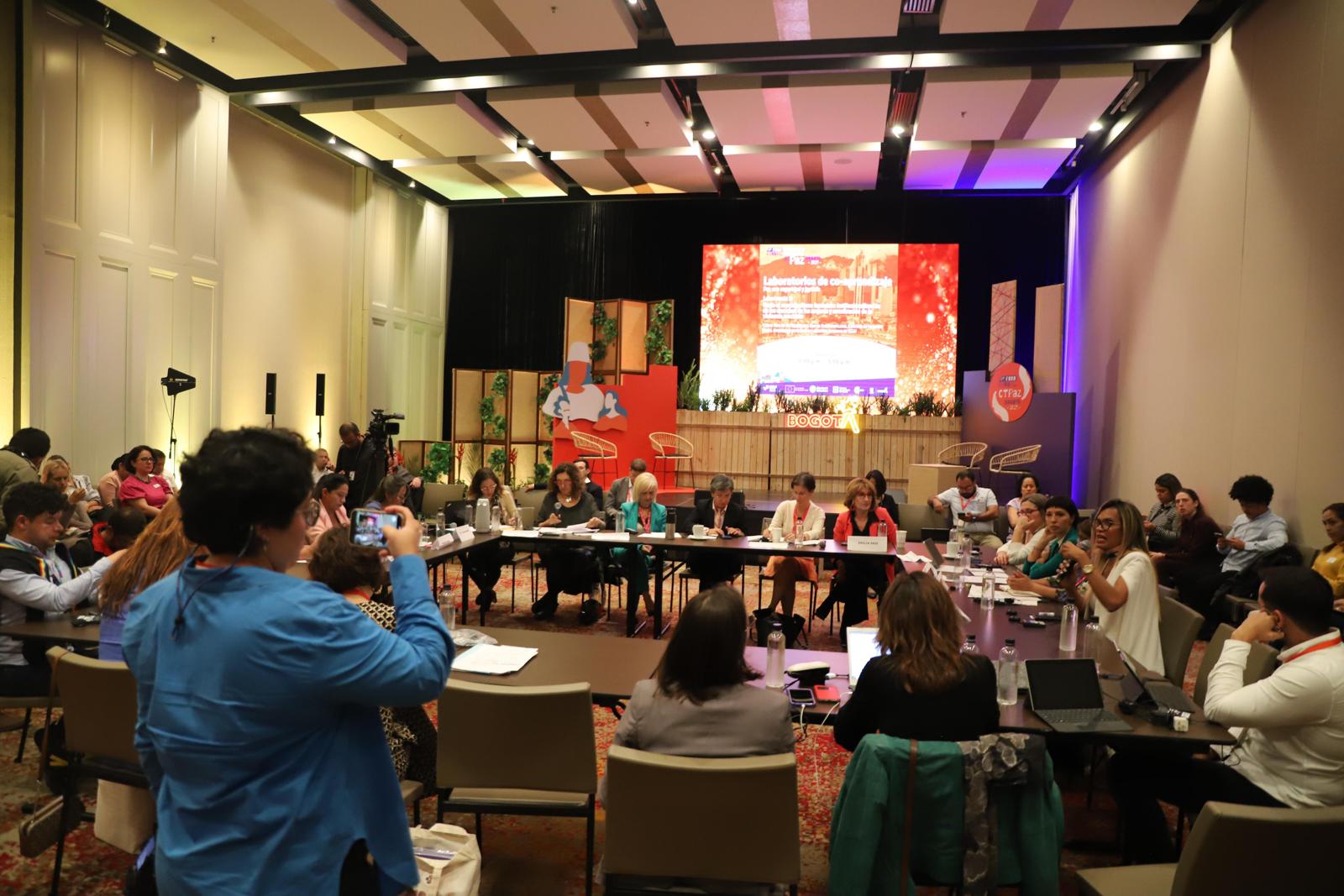

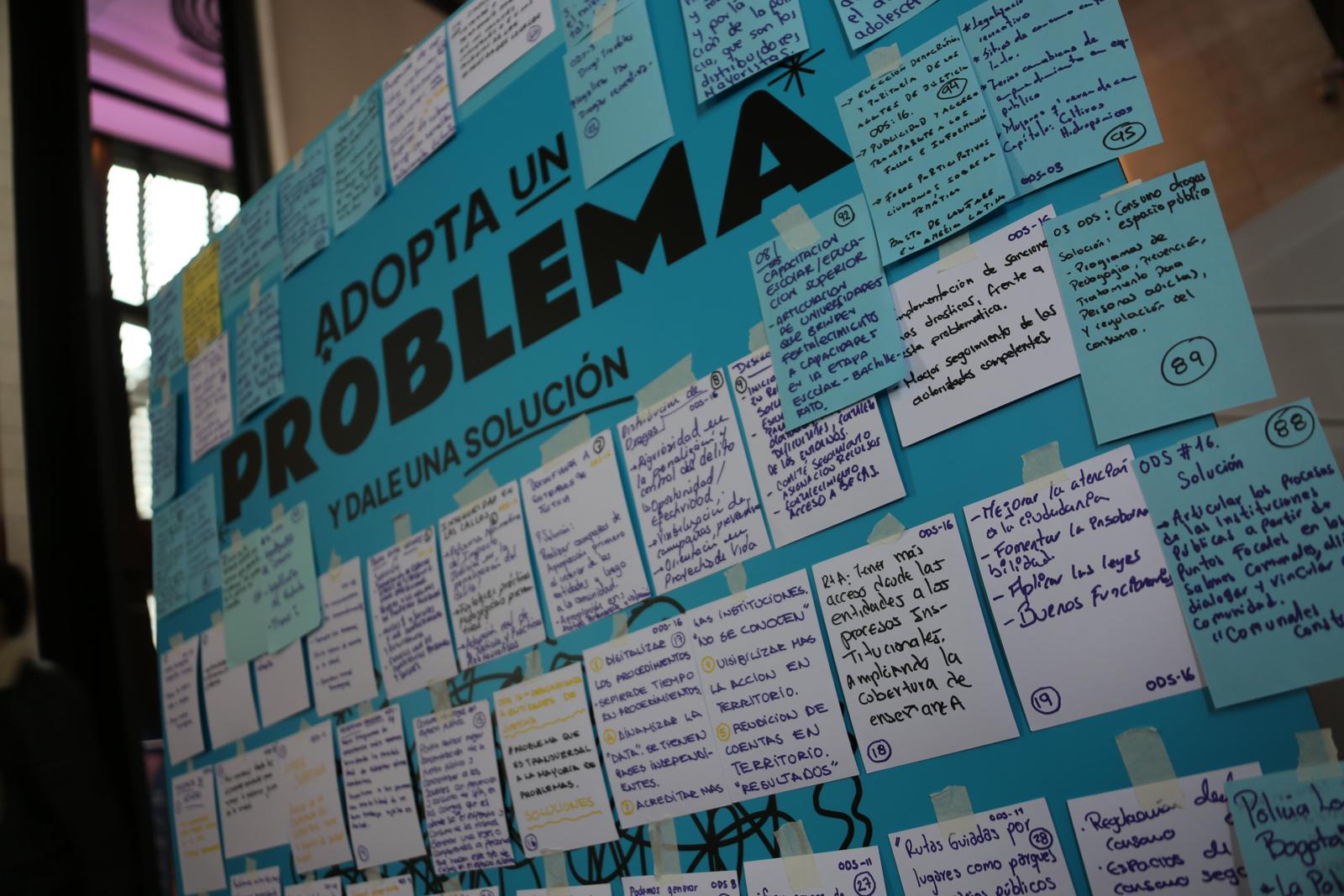

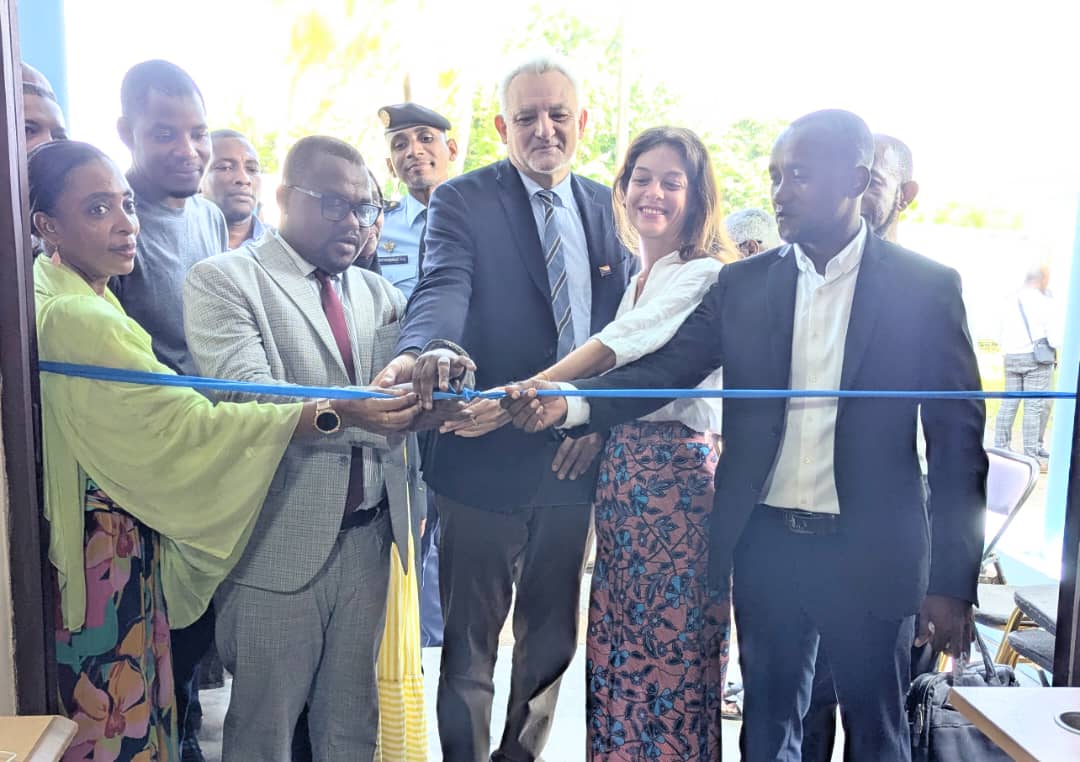

After a challenging year in 2024—marked by the election of a new governor for the Autonomous Island of Ngazidja and a cholera...
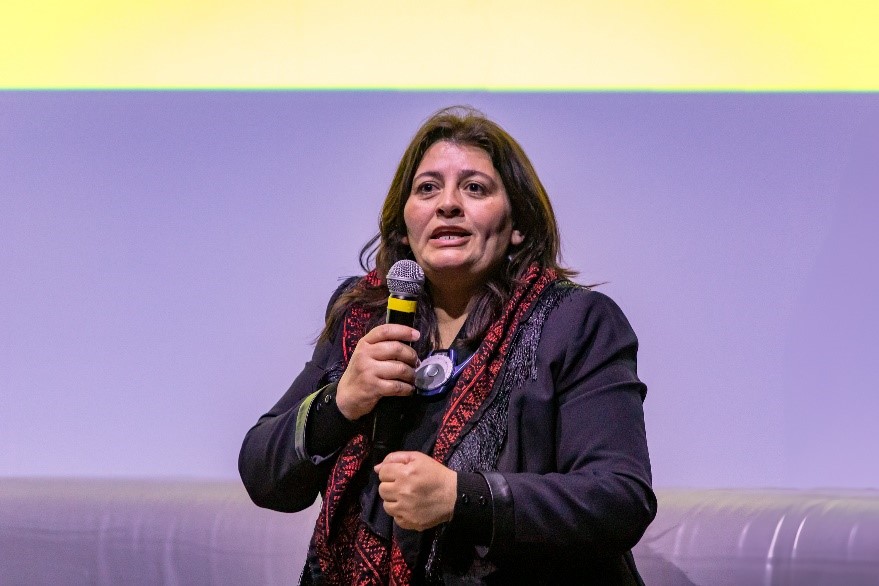

For over a month, the refugee camp of Jenin in the West Bank has been under Israeli siege. The humanitarian situation is...











On the occasion of the International Day of Zero Tolerance for Female Genital Mutilation (FGM), it is crucial to highlight that...
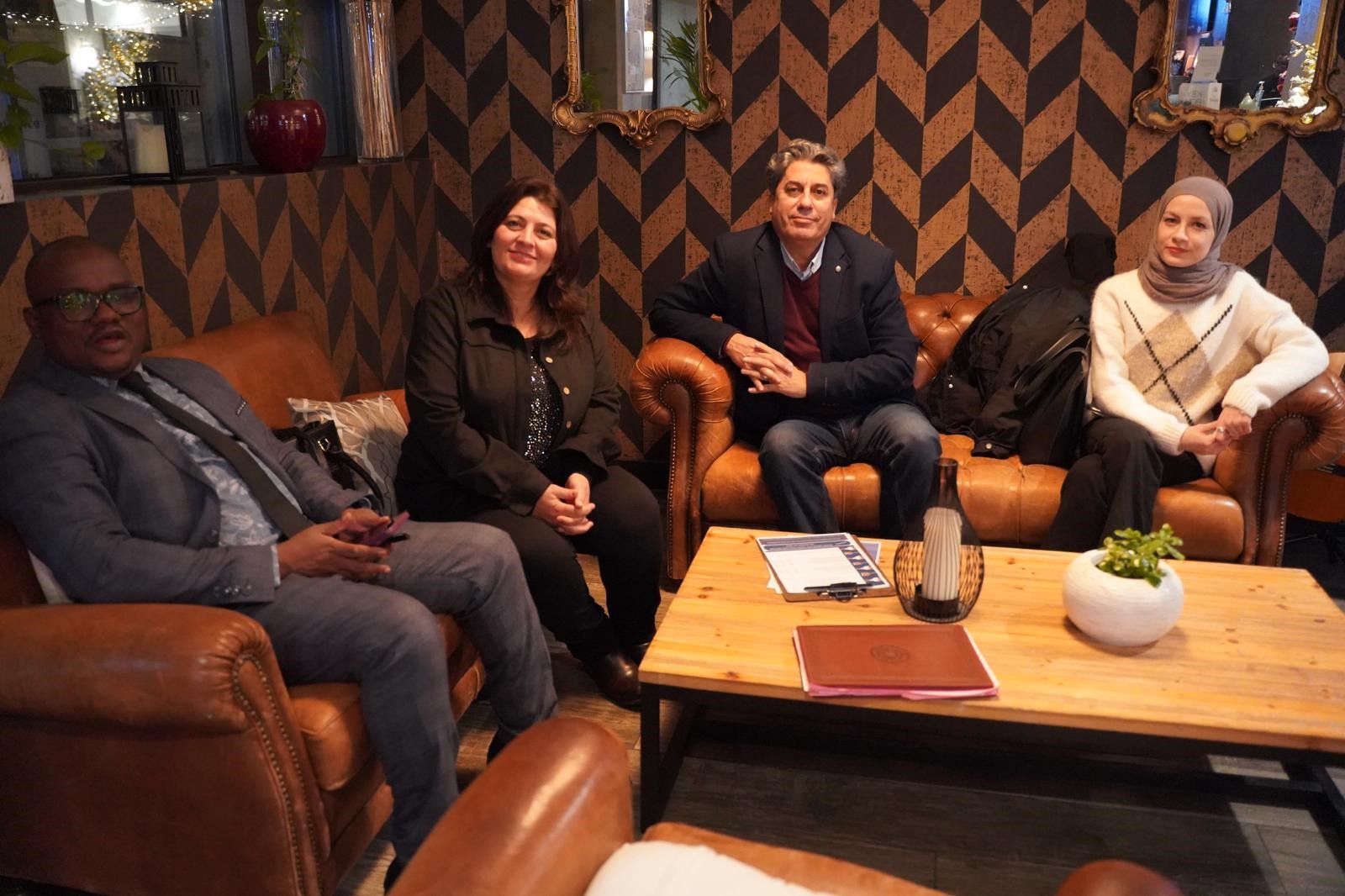

While Israel and Hamas announced on Wednesday, January 15, 2025, an agreement for a ceasefire in Gaza, accompanied by the release...
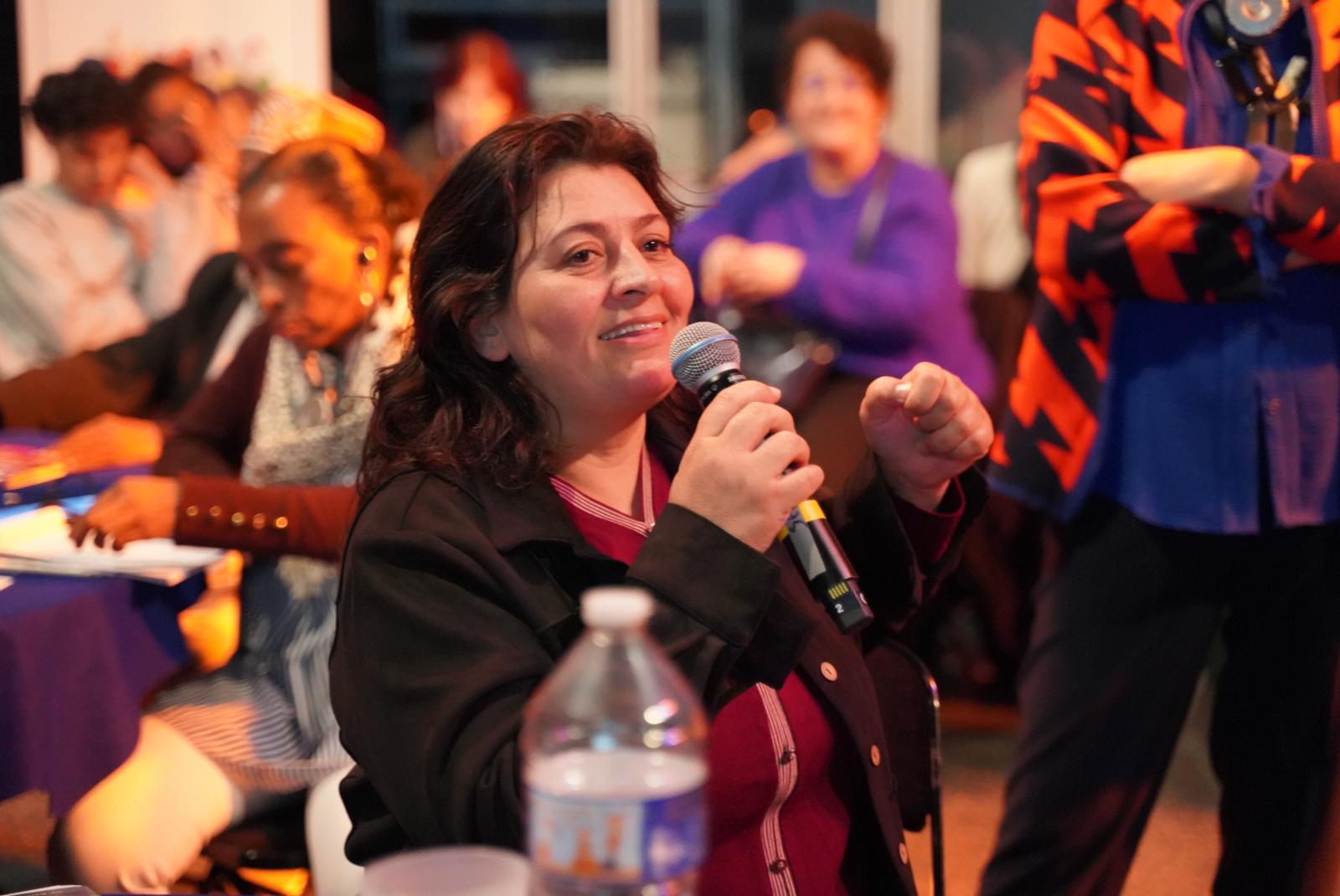

During our exchange on December 17, 2024, Mayssoun Dawoud, head of Jenin's Observatory of Violence against Women, testified
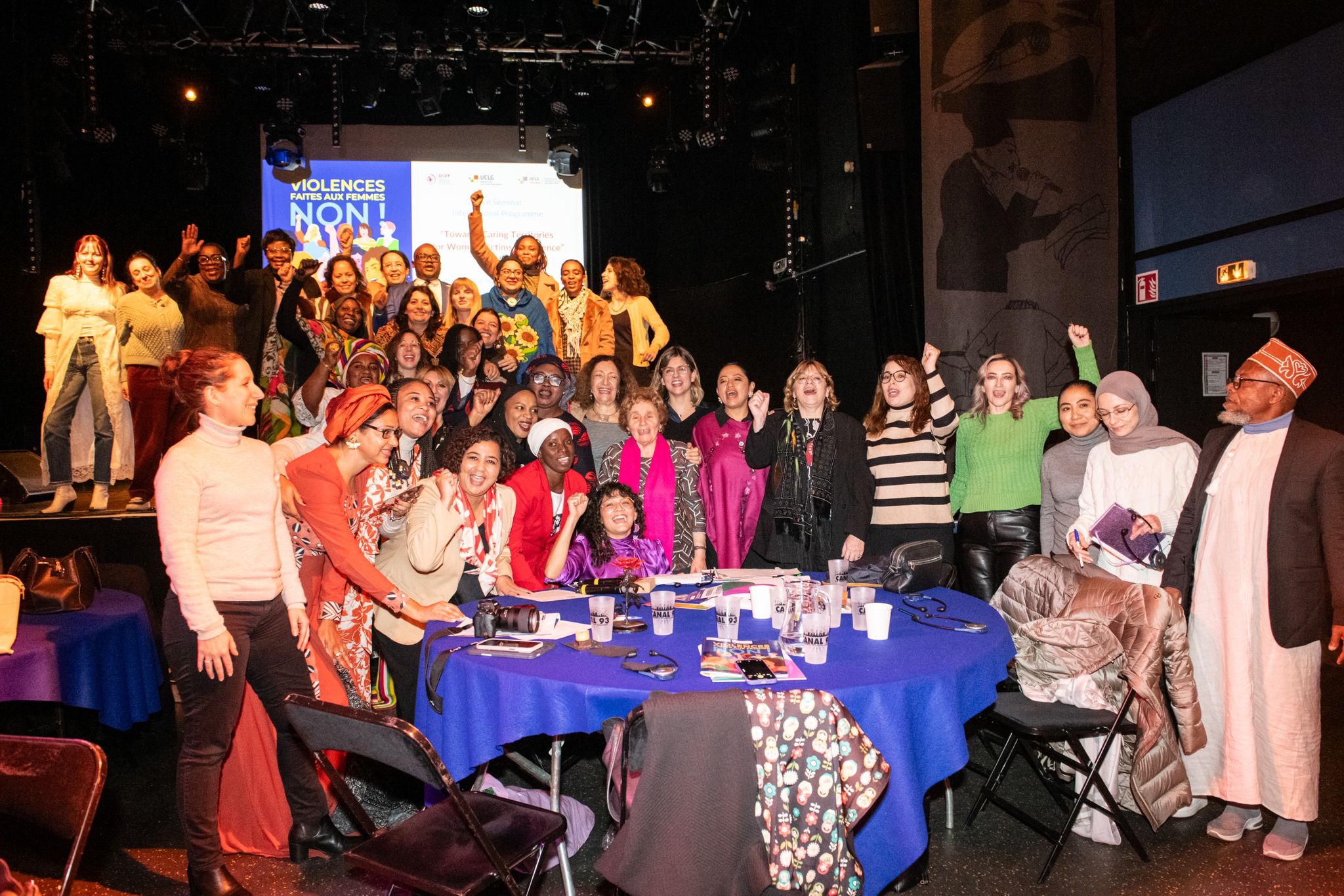

Over 50 Local Leaders and Experts Gather in Seine-Saint-Denis to Highlight the Role of Local and Regional Governments to #EndVAW
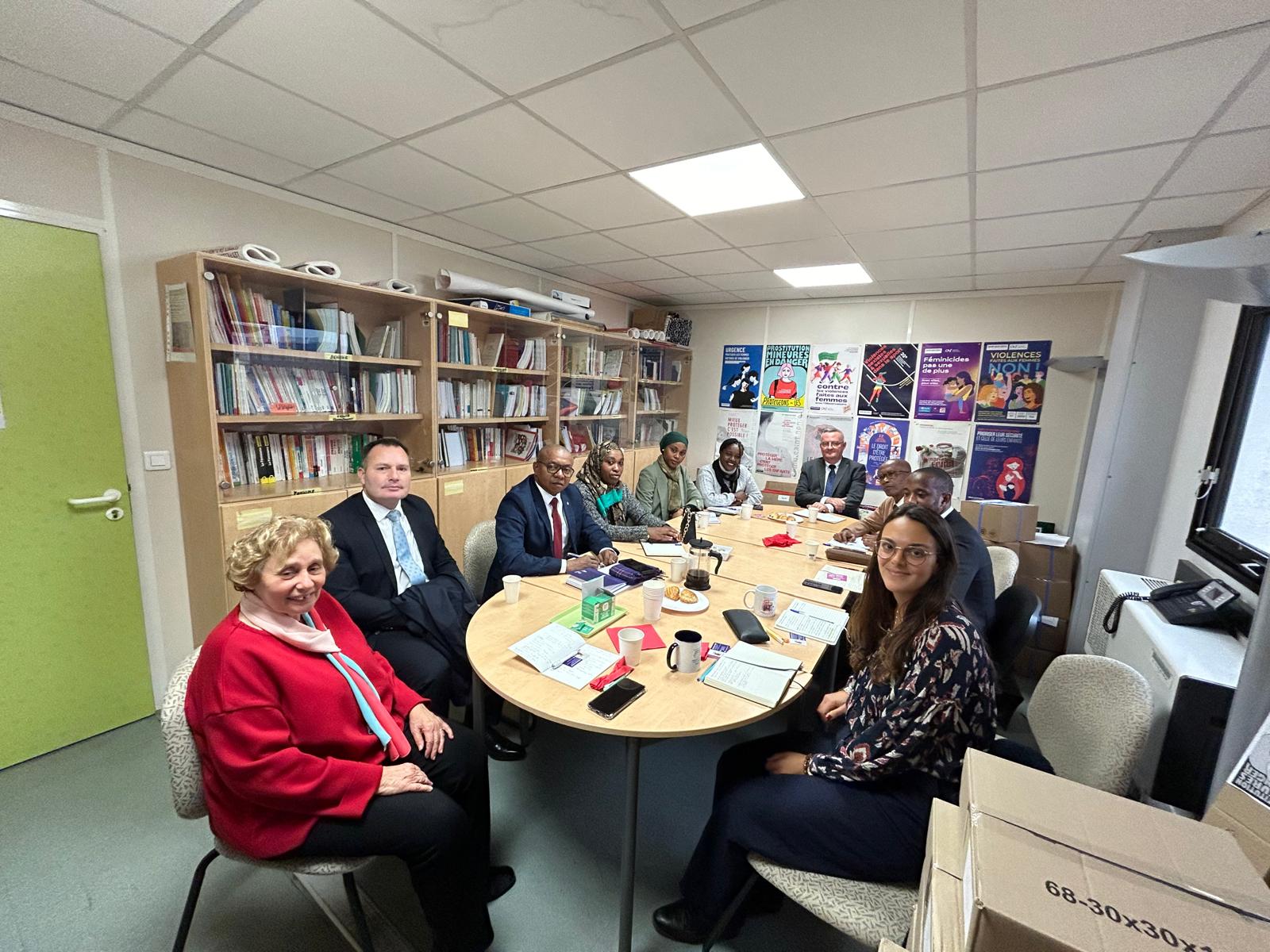

On November 15, 2024, the Observatory on violence against women welcomed a Comorian delegation composed of actors committed to...
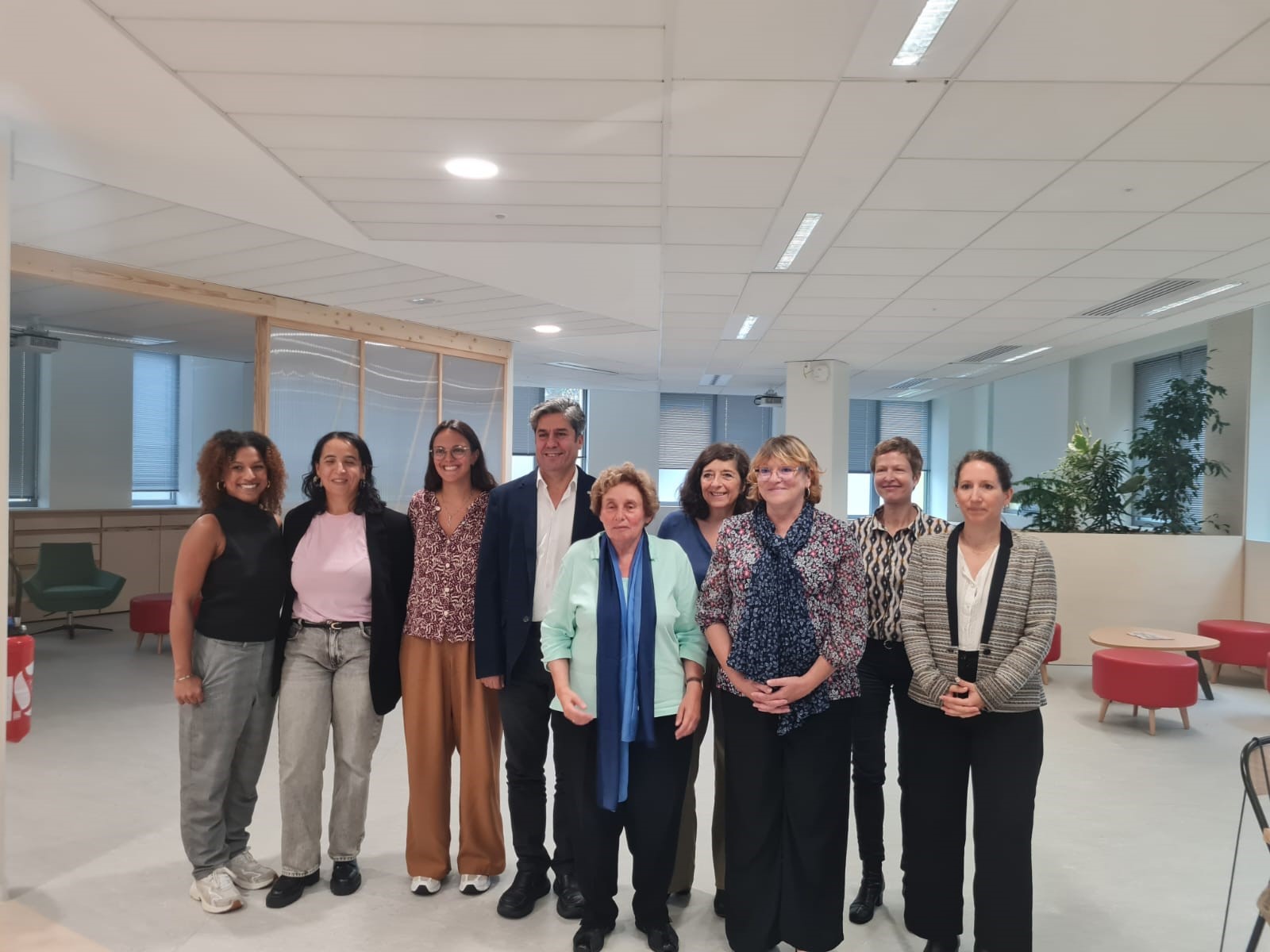

On September 5th, in the absence of the mayor of Jenin, who was held back by the Israeli offensive in his town, the mayors of...











On the occasion of the International Day of the Girl Child, celebrated on October 11, the International Observatory on Violence...


During our weekly meeting on August 8, 2024, Maysoun Dawoud, Head of the Observatory of Violence Against Women in Jenin, shared...



As part of its program "Territories that protect women victims of violence" the International Observatory of Violence Against...


As part of the project "Territories that Protect Women Victims of Violence," the International Observatory on Violence Against...
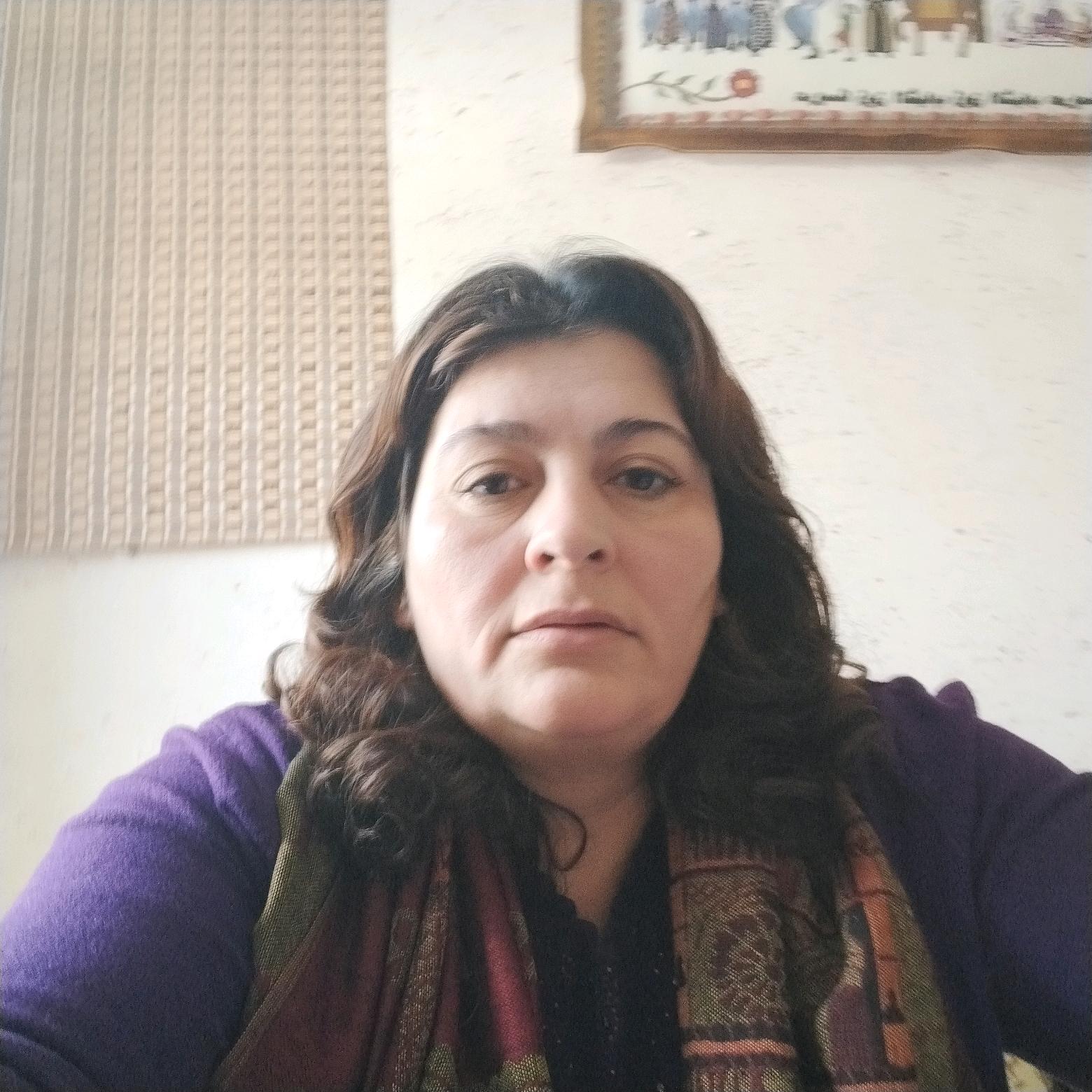


During our weekly meeting on July 9, 2024, Mayssoun Dawoud, Head of the Observatory of Violence Against Women in Jenine, shared...
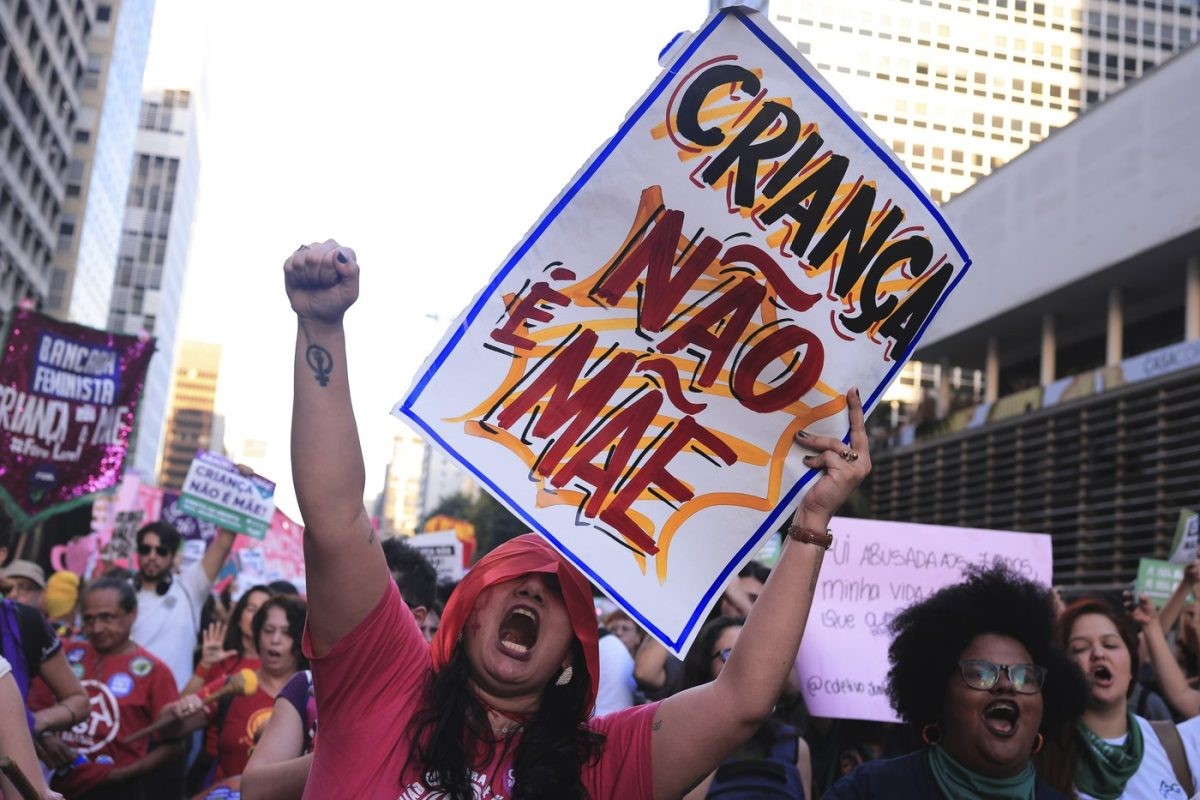

Thousands of people protested on Thursday, June 13, in several cities across Brazil against a bill being examined by Congress...
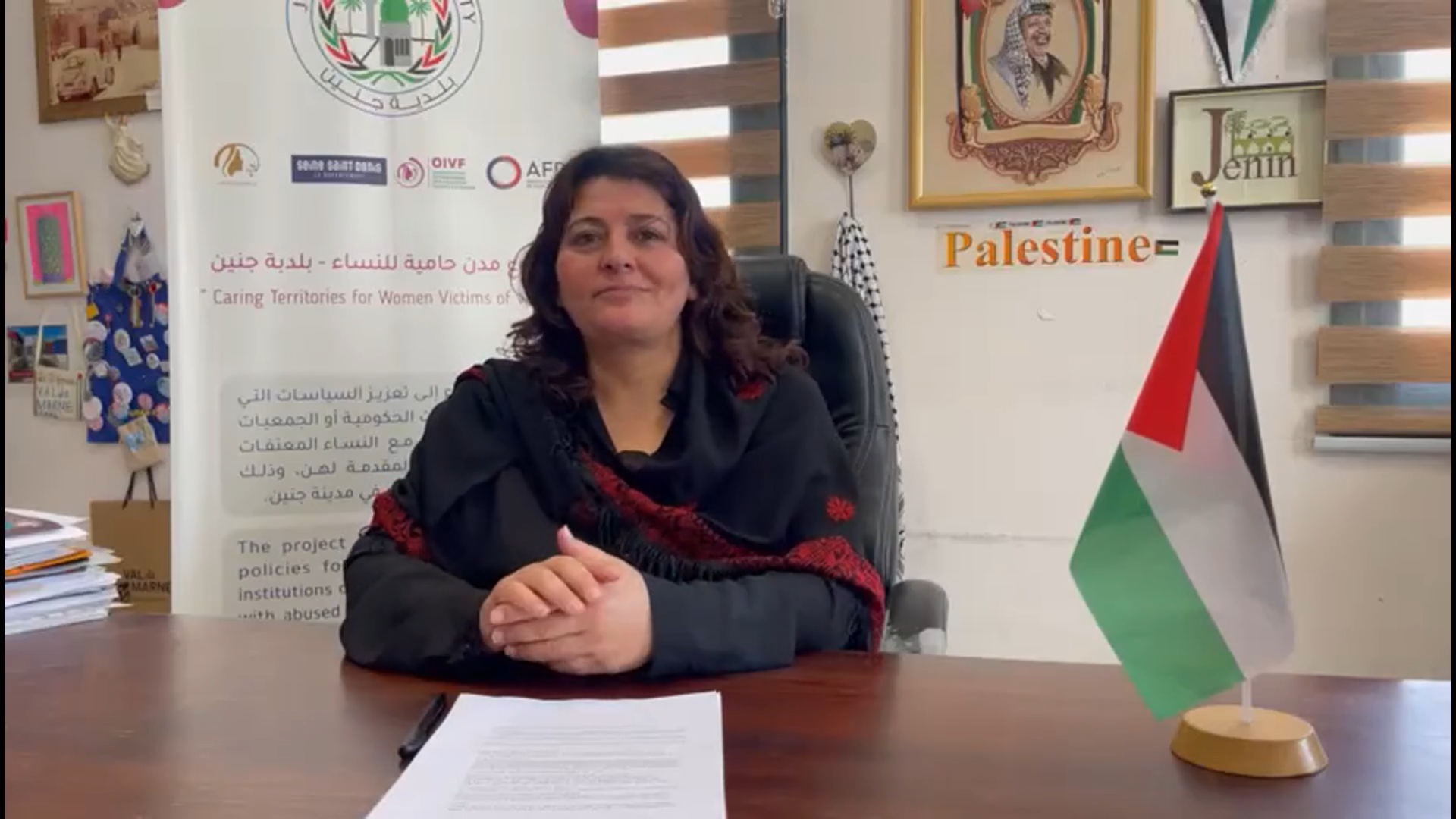


During our weekly meeting on May 30, 2024, Mayssoun Dawoud, Head of the Observatory of Violence Against Women in Jenin, shared...
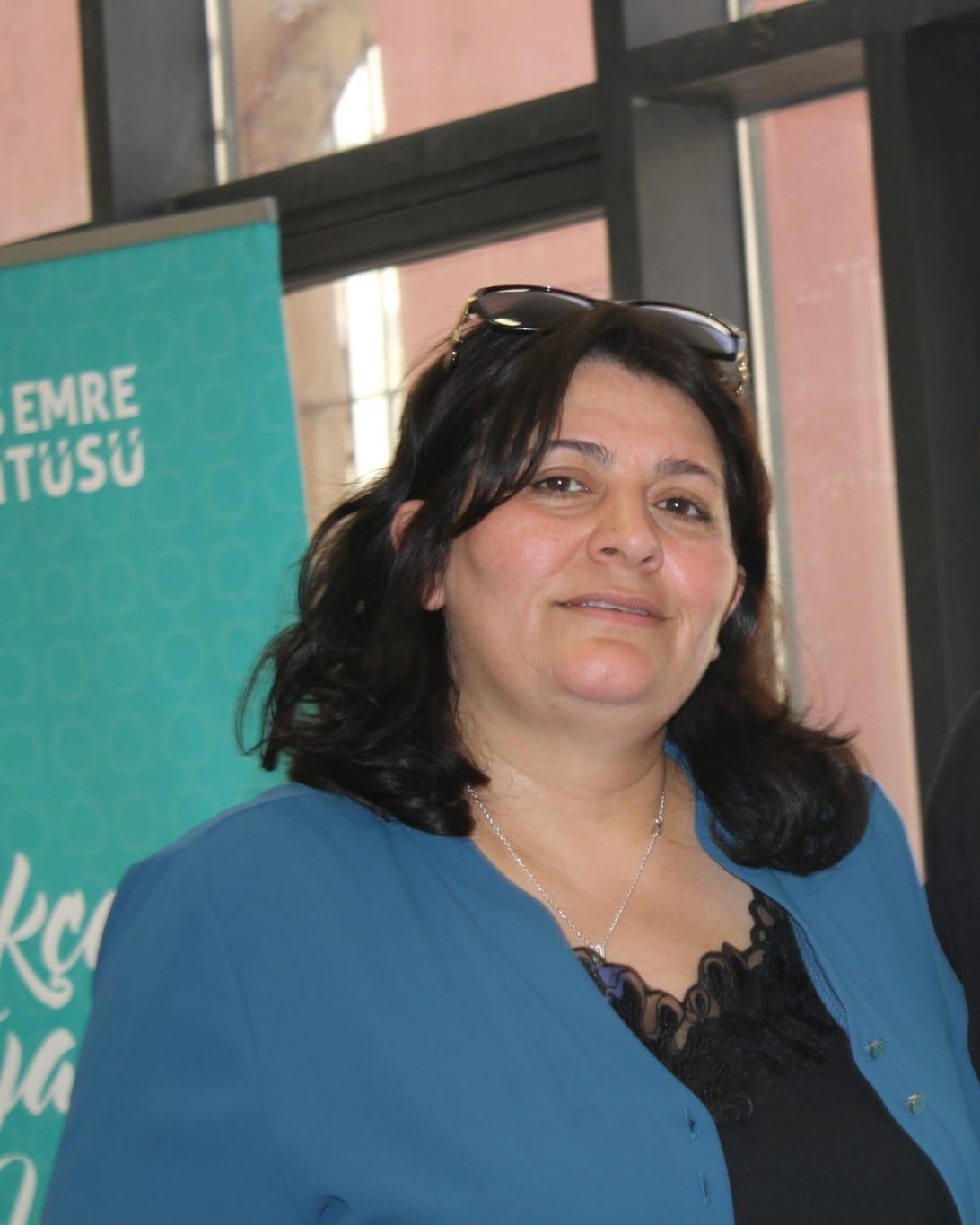



During our weekly meeting on May 16, Mayssoun Dawoud, Head of the Observatory for Violence Against Women in Jenin, shared...
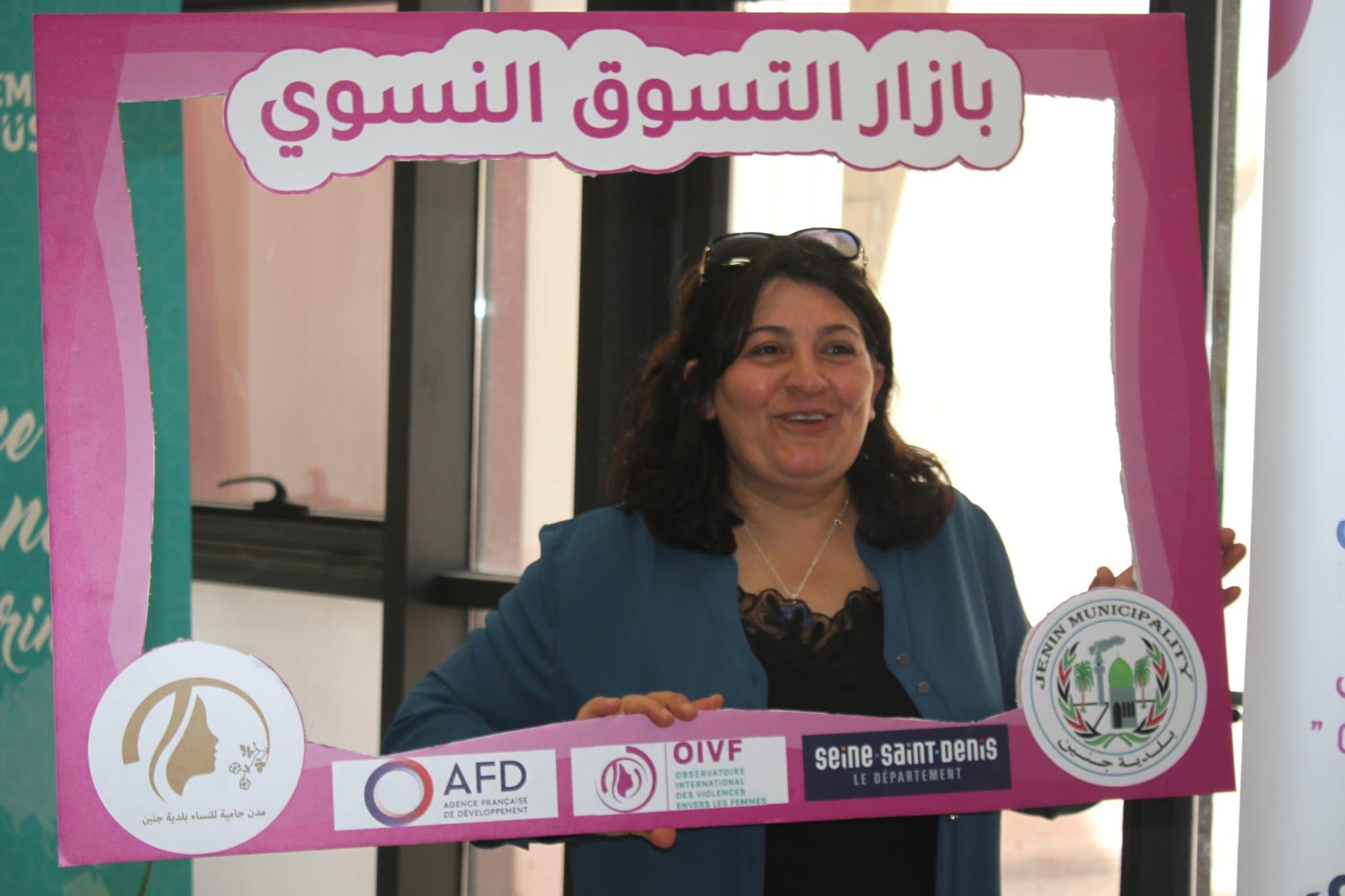


During our last two weekly meetings, Mayssoun Dawoud, Head of the Women's Violence Observatory in Jenin, shared information about...


On the occasion of International Labour Day, it is important to highlight initiatives aimed at promoting the economic empowerment...



During our weekly video conference on 4 April, we shared information on the situation in Jenin. Maysoun Dawoud, Head of the Jenin...
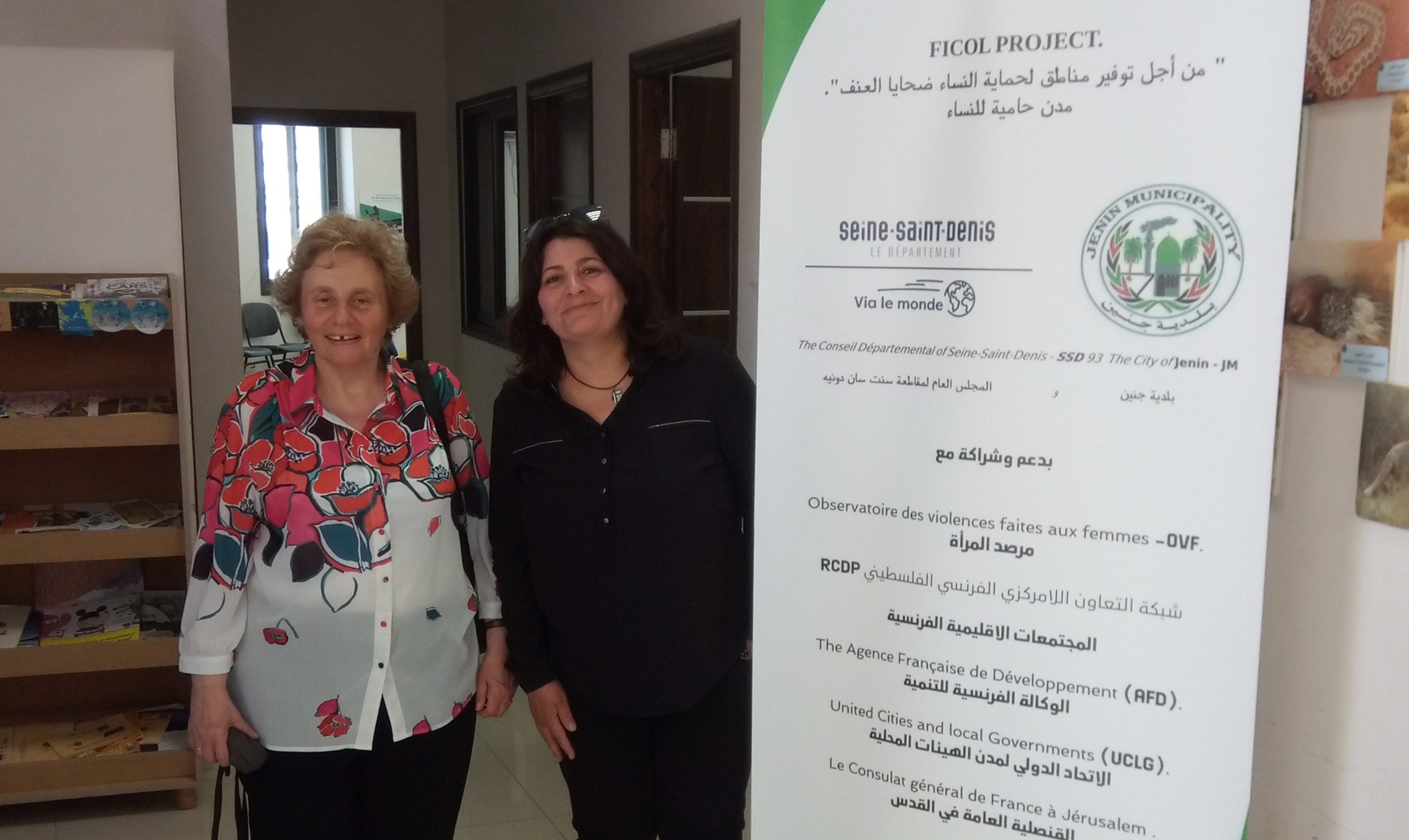

As part of the project “Territories protecting women victims of violence”, the International Observatory on Violence against...
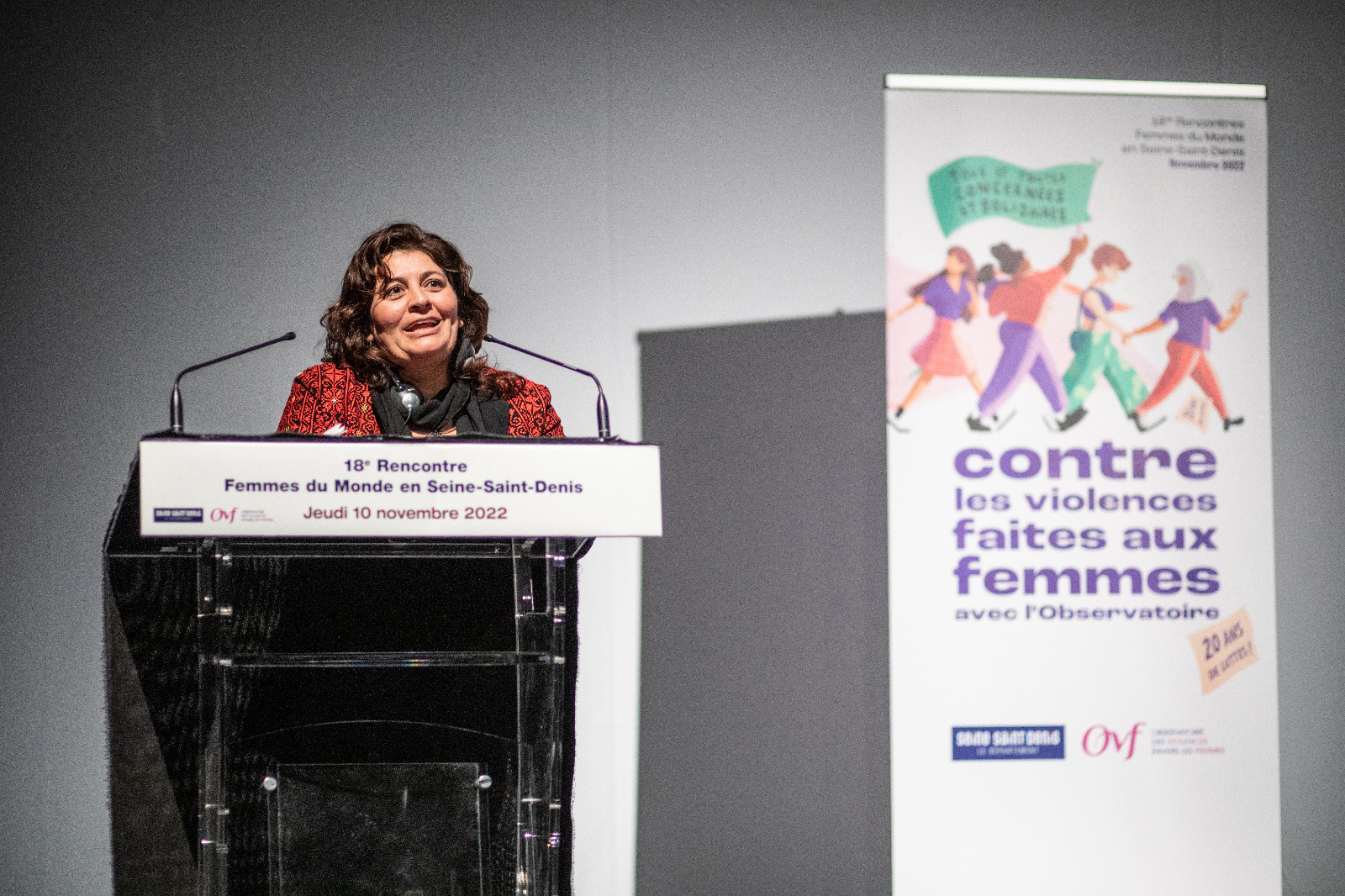

During our weekly video call on March 21st, Mayssoun Dawoud, Head of the Observatory for Violence Against Women in Djenin, shared...




During a telephone conversation on March 13, we received alarming information about the situation in Djénine. Mayssoun Dawoud,...


On this March 8, 2024, we would like to express our solidarity with all women and girls who are victims of violence in times of...
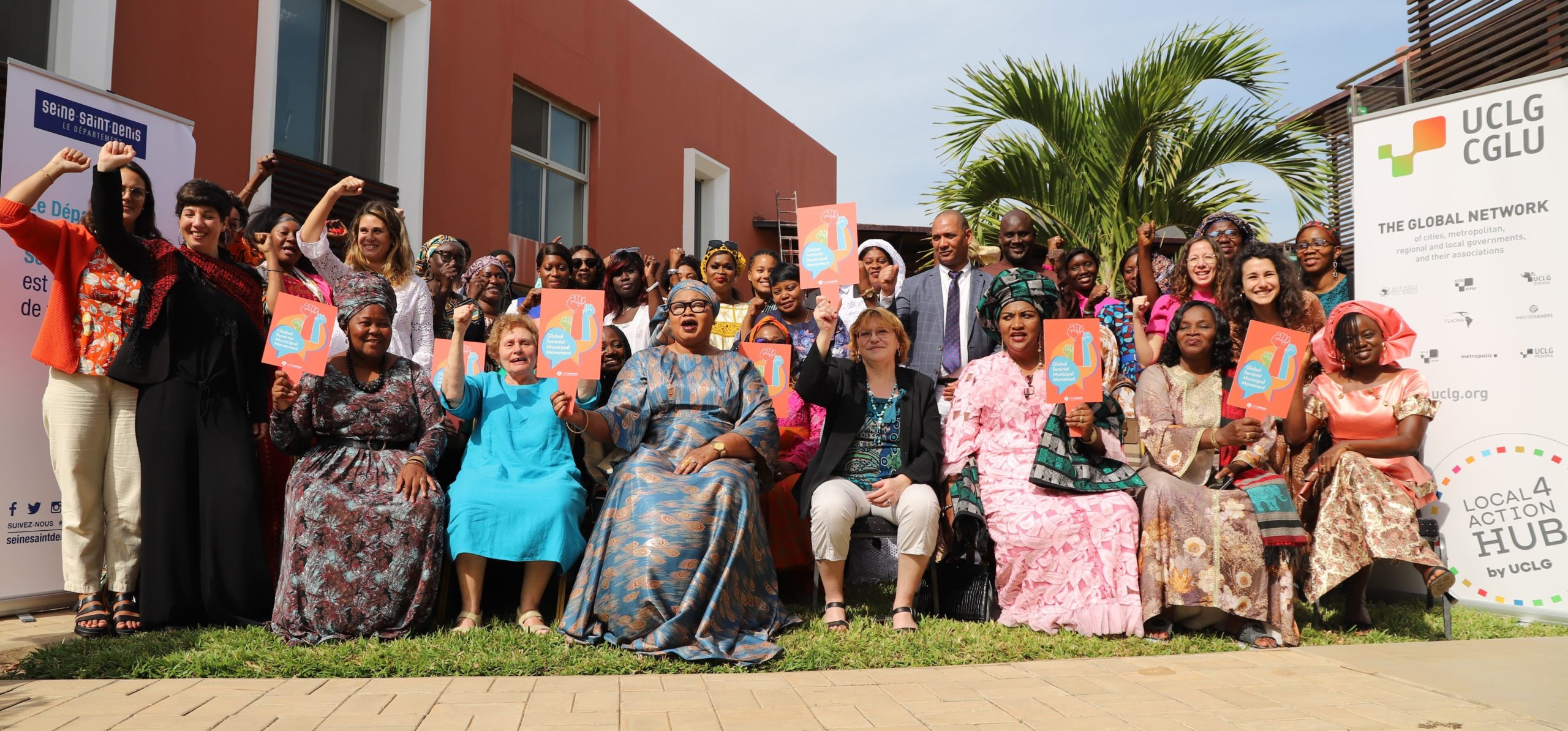

A look back at the seminar entitled "Territories protecting women victims of violence", organised by the International...




During our weekly video conference meeting with Palestine on February 8th, Mayssoun Dawoud, Head of the Observatory for Violence...











The International Observatory on Violence against Women is committed to combating female genital mutilation.
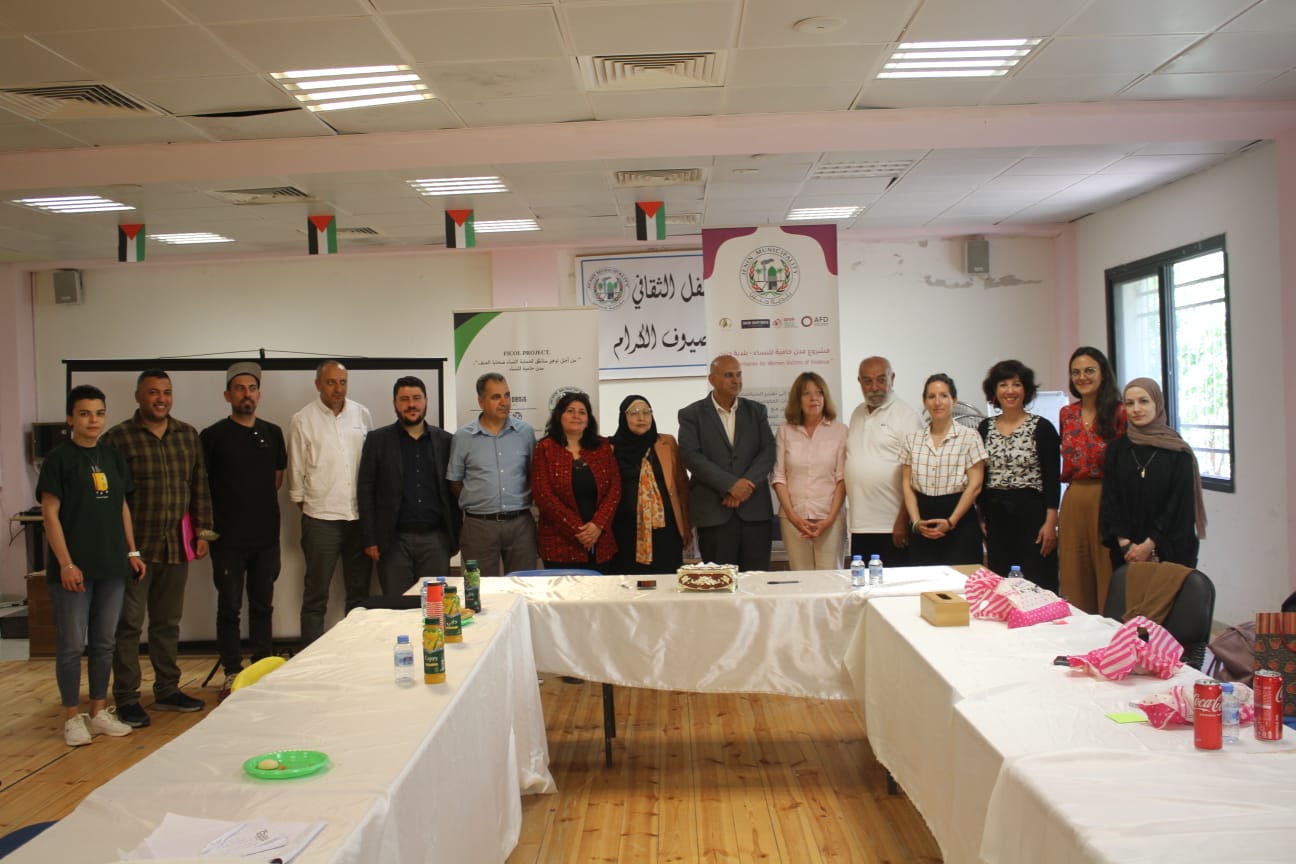

As part of the project "Territories protecting women victims of violence," the team from the Observatory of Violence against...



Within the framework of the project "Territories protecting women victims of violence", the city of Jenin, is the target of...
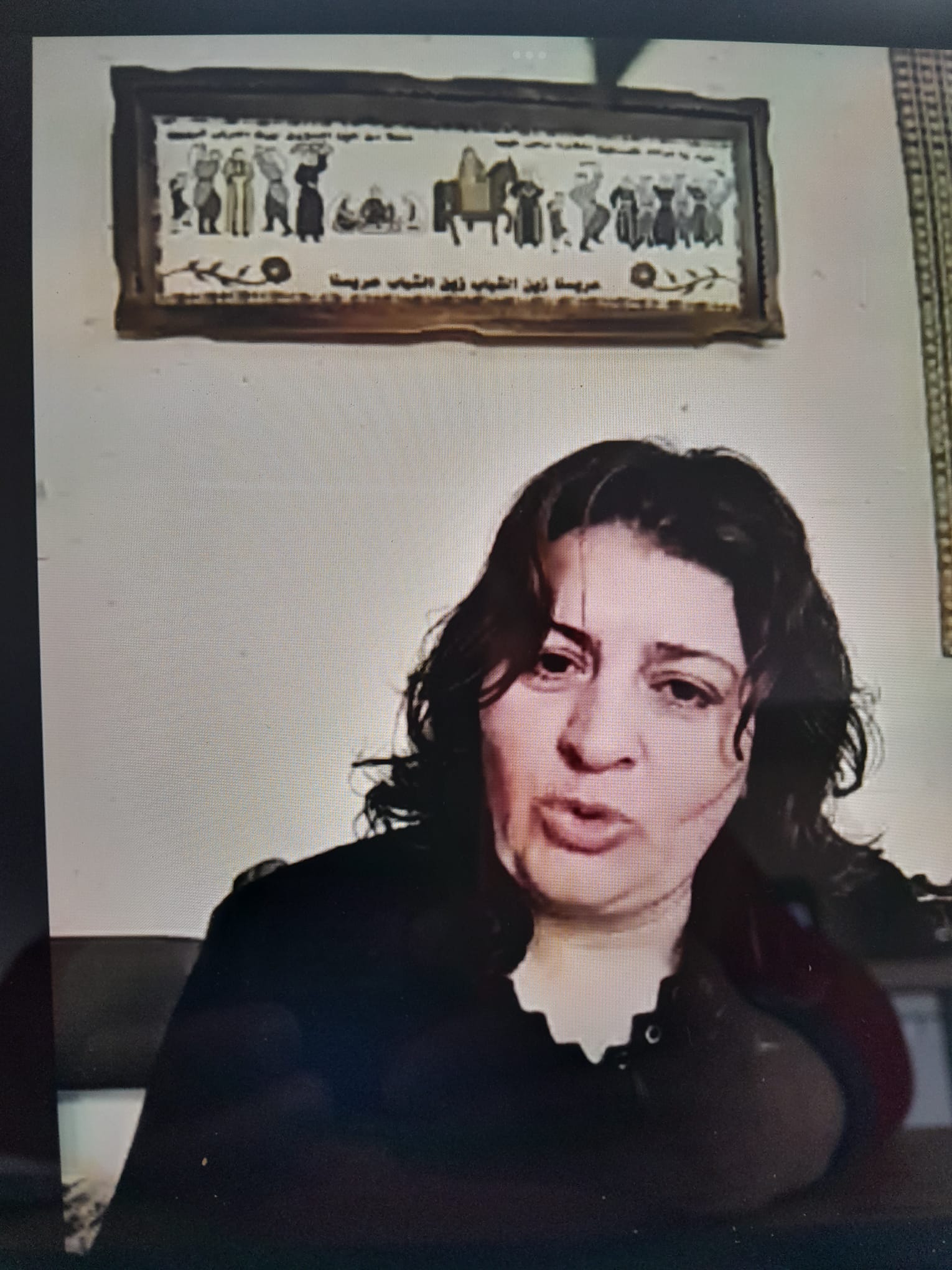

As part of the project "Territories protecting women victims of violence", the team of the International Observatory on violence...











As part of the project "Territories protecting women victims of violence", the International Observatory on violence against...



As part of the project "Territories protecting women victims of violence", the International Observatory on Violence against...


From November 8 to 17, the Observatory of Violence against Women hosted the 19th edition of Femmes du Monde in Seine-Saint-Denis....


In November 2023, Yadira Cortés Castillo, a Mexican activist and guest speaker at the 19th ”Femmes du Monde” in...
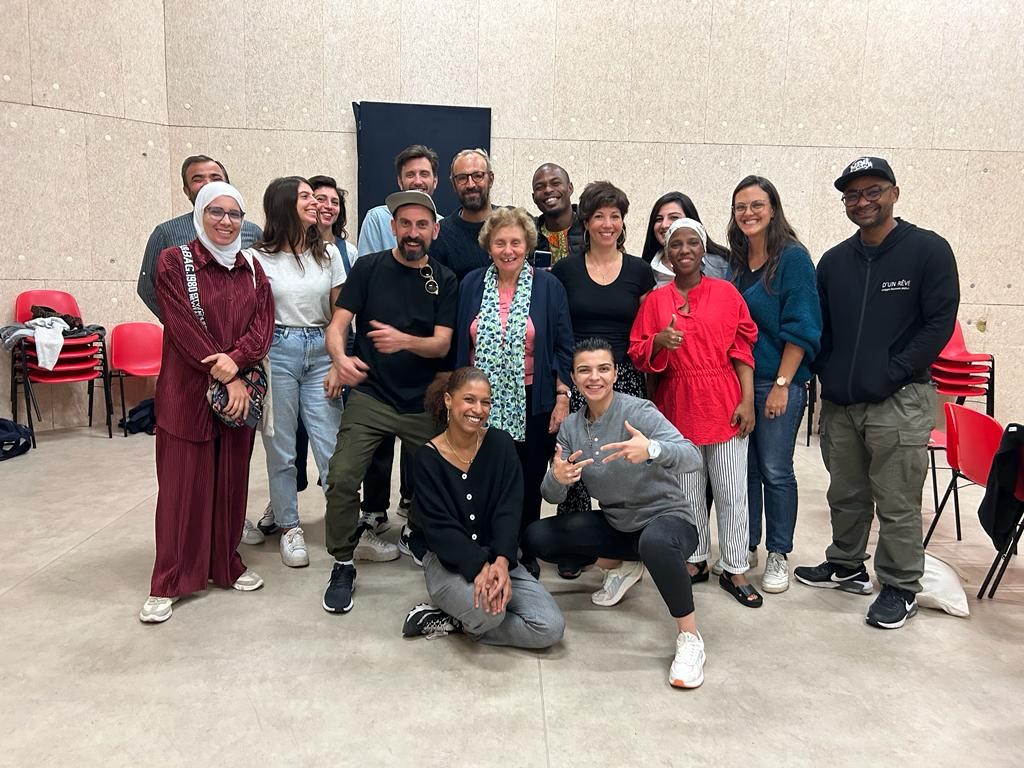

In September 2023, a delegation of facilitators from Djénine and Ngazidja came to Seine-Saint-Denis to participate in training...
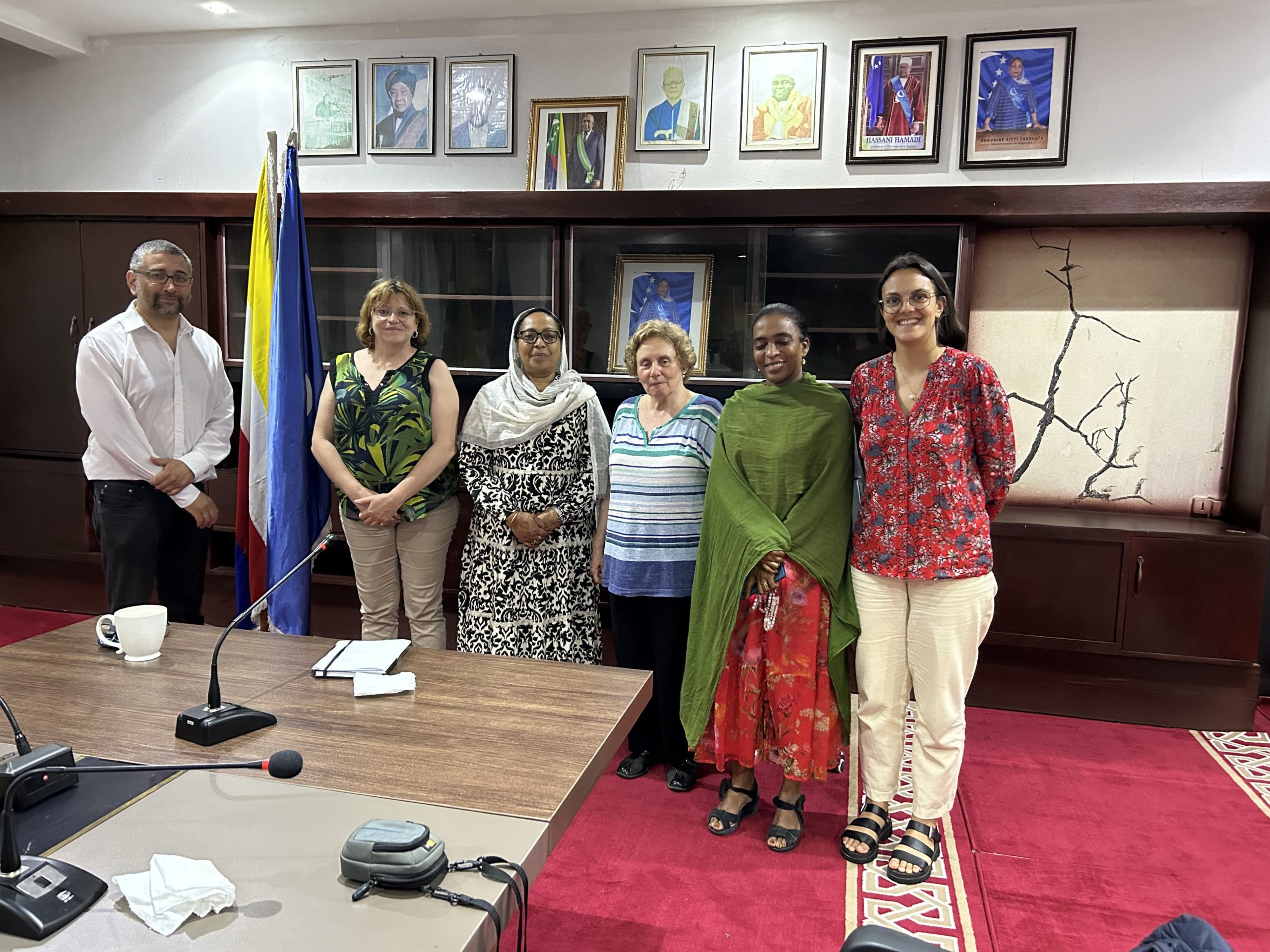

In June 2023, a delegation from Seine-Saint-Denis travelled for the second time to Ngazidja (Comoros), as part of the "...


In May 2023, a delegation from Seine-Saint-Denis visited the Palestinian Territories as part of the international programme...
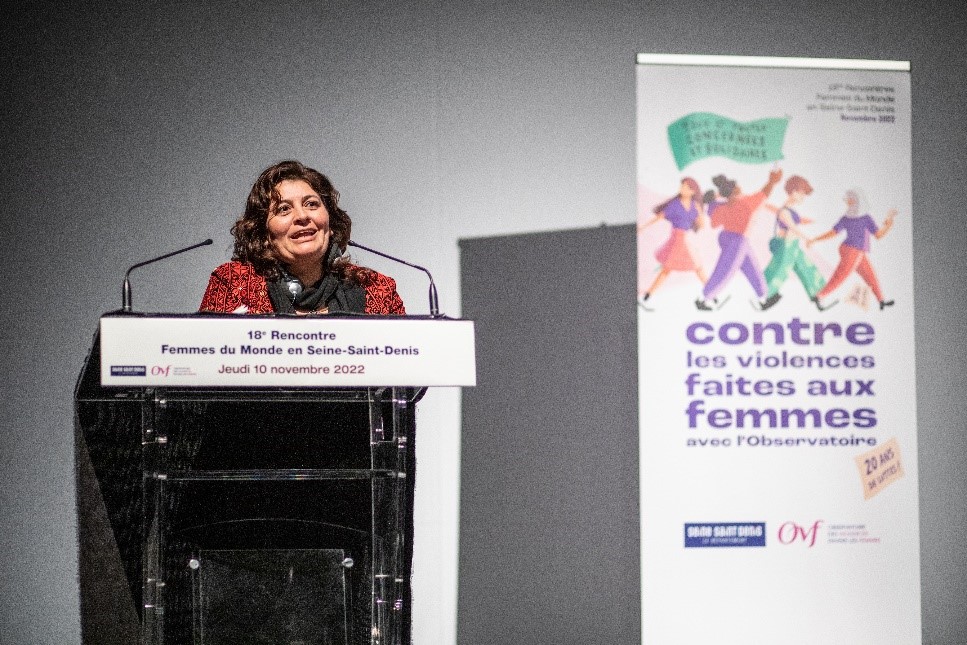

In the framework of the project “Territories protecting women victims of violence”, the International Observatory on Violence...



The coordinator of the International Observatory on Violence Against Women attended the 4th Forum of Cities and Territories for...



This is the fifth edition of the call for projects Agir IN Seine-Saint-Denis. This year, a new category of actions dedicated to...











To mark the 75th anniversary of the Universal Declaration of Human Rights, we are proud to join the Social Inclusion, Human...
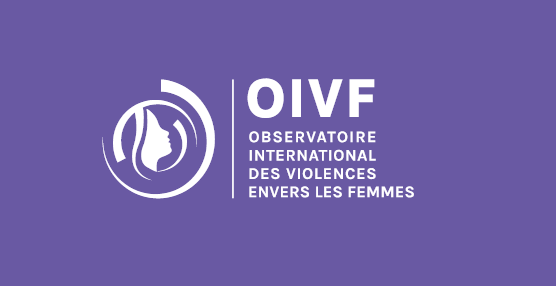

This day of mobilisation throughout the world is an opportunity to reflect on the situation of women, the progress made but also...
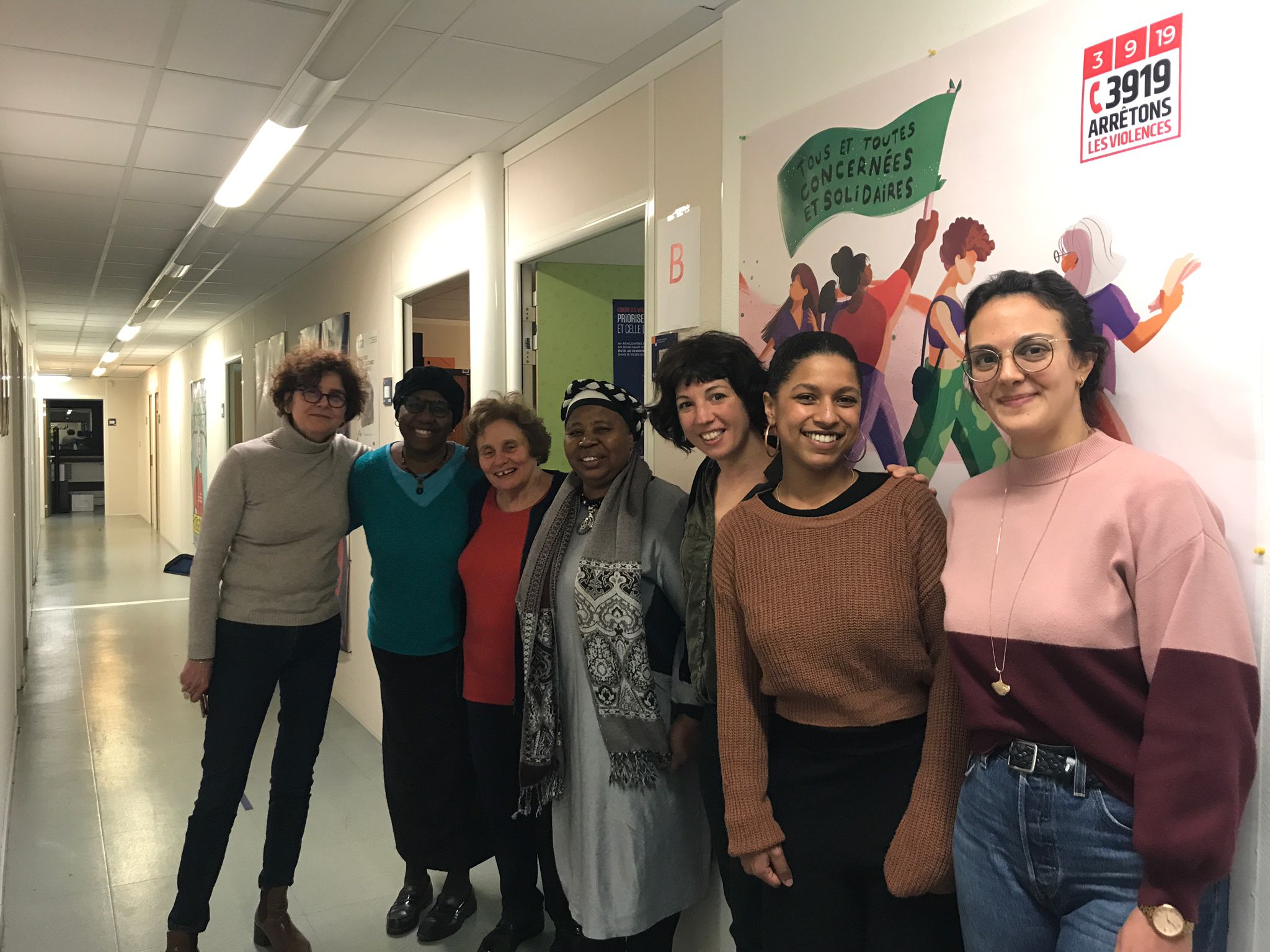

A look back at the meeting between the International Observatory on Violence against Women and Mrs. Bintou Founé Samaké...
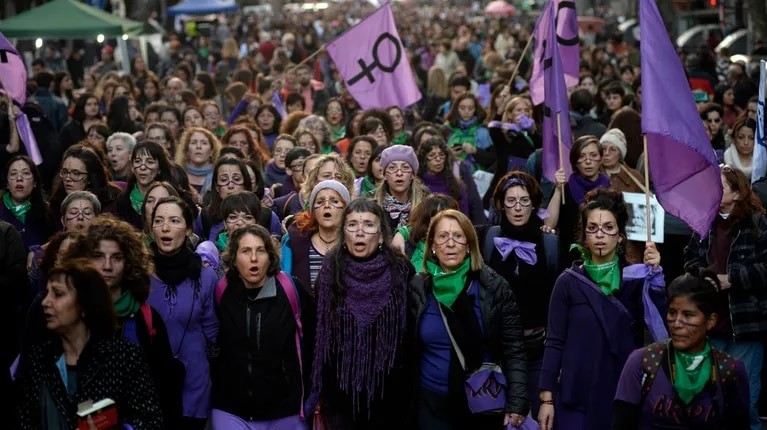

On the occasion of 8 March, it is essential to highlight the mobilisation of women in social movements, who are fighting to put...
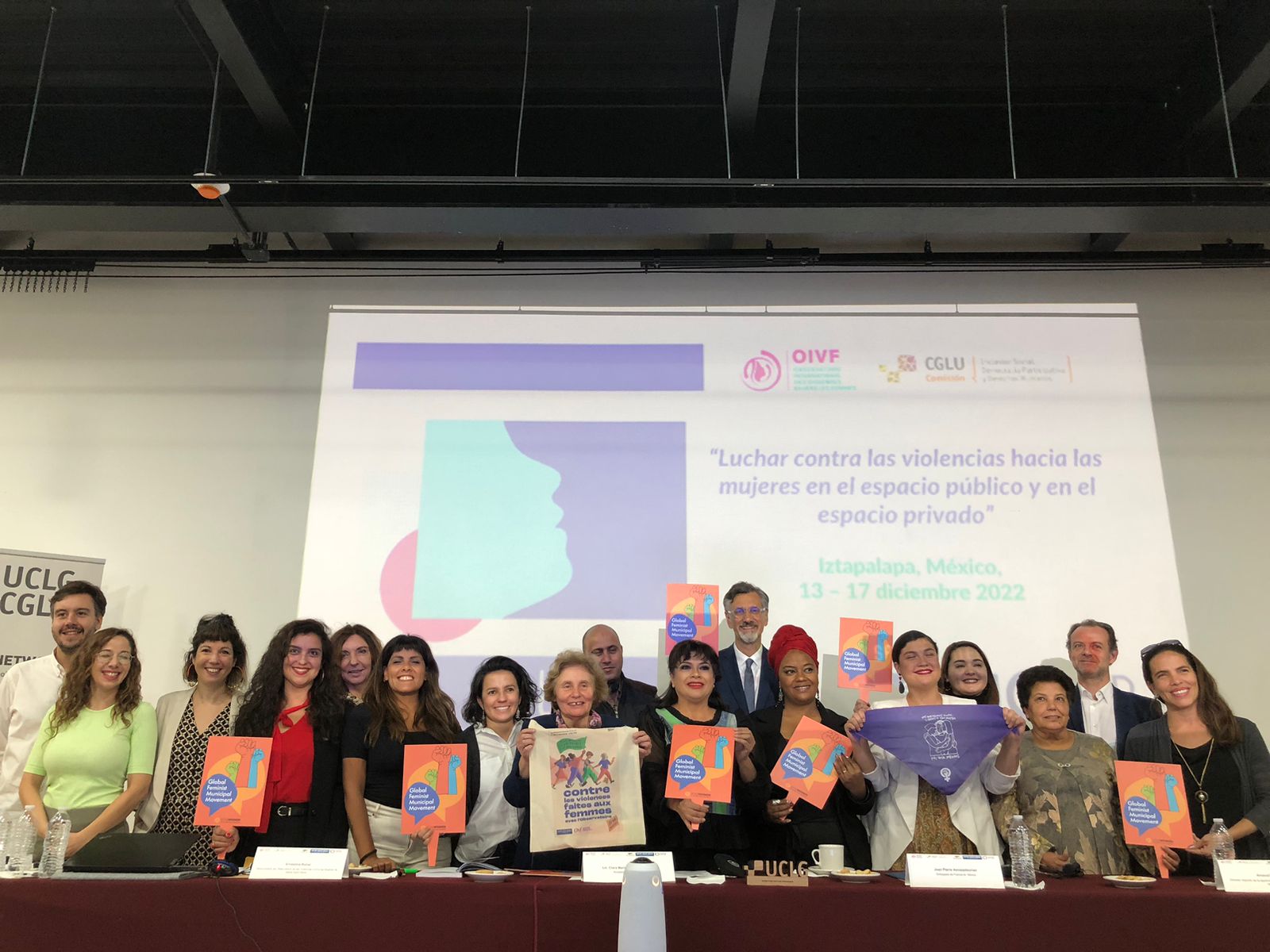

Return on the seminar "Fighting violence against women in public and private spaces" organised by the International Observatory...











February 6 marks the International Day of Zero Tolerance to Female Genital Mutilation.


From November 7 to 12, the Observatory of Violence against Women hosted the 18th edition of Femmes du Monde in Seine Saint Denis,...
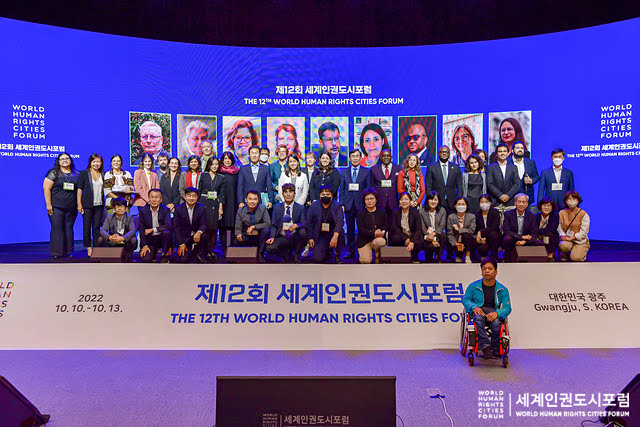

From 9 to 14 October 2022, the International Observatory on Violence against Women was in South Korea to participate in the World...











In the pursuit of the International Observatory program "Caring territories for women victims of violence", our delegation went...











On June 22, 2022, the Department of Seine-Saint-Denis and UGCL co-hosted a webinar on "Local and Regional Governments against...











Following the development of the international program "Territories caring for women victims of violence", a delegation composed...
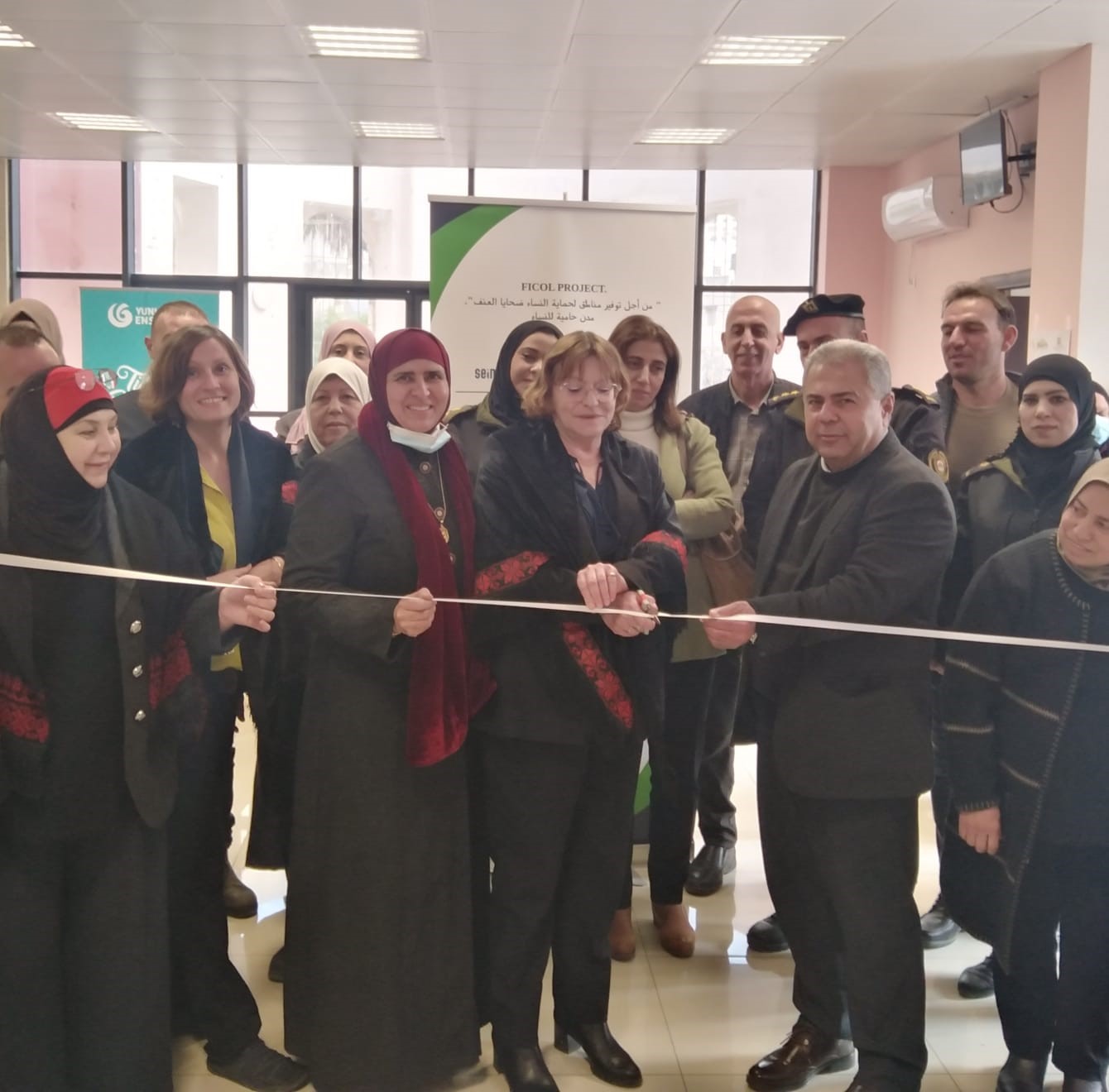

In February 2022, the city of Jenin (Palestine) inaugurate the office of the Observatory of Violence against Women.
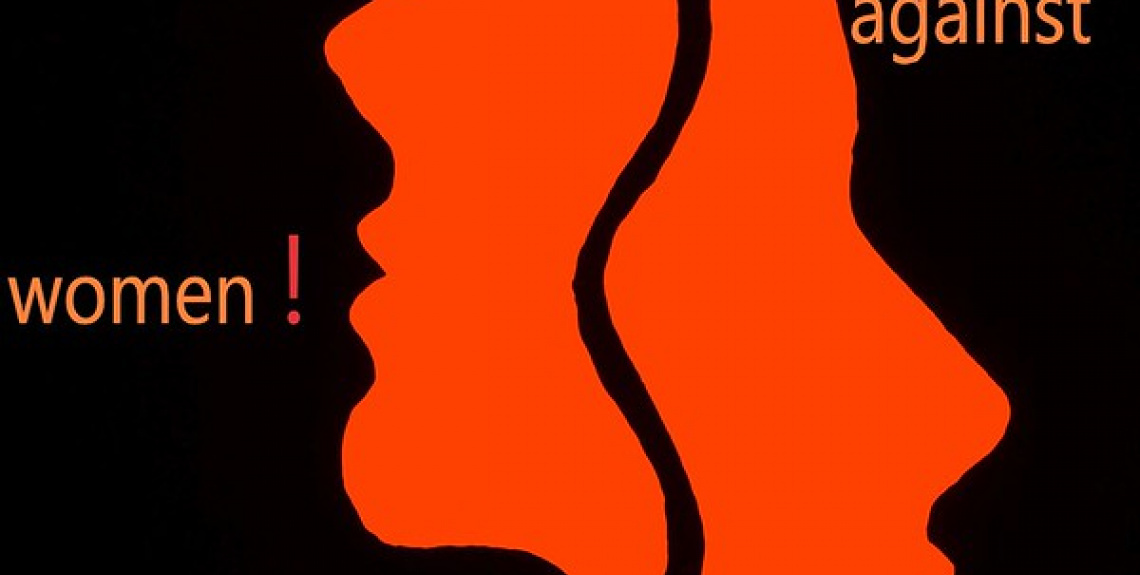

On this International Women’s Day, we would like to express our solidarity with all these women and their children.
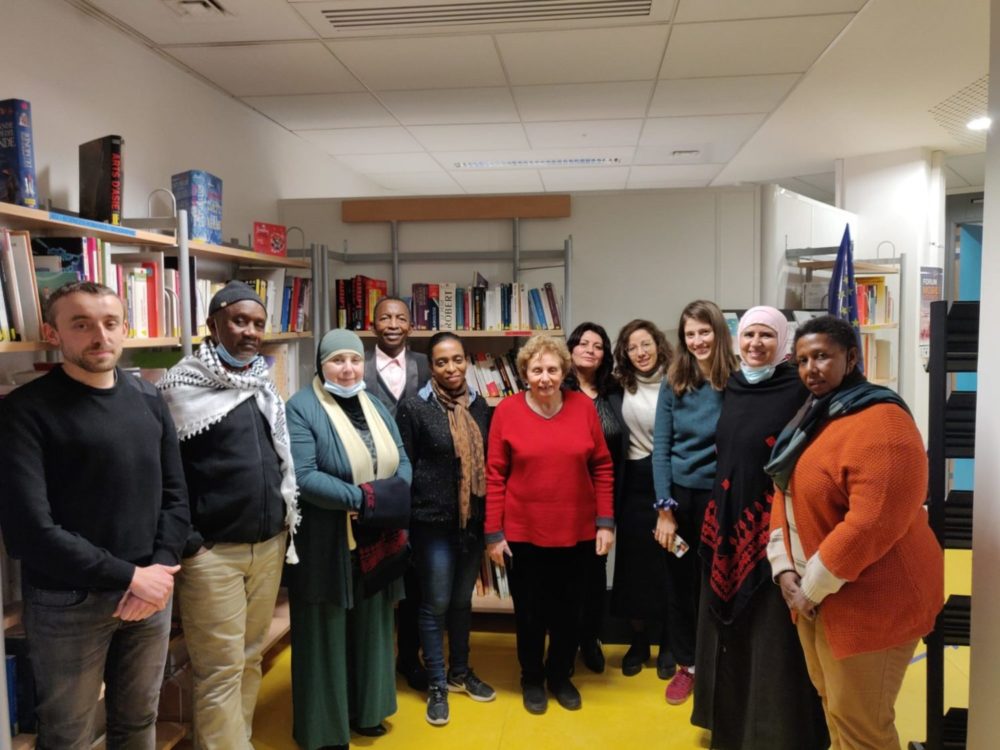

Meeting between the Observatory of violence against women of Seine Saint Denis, the island of Ngazidja (Comoros) and the...
No results were found for your search
Join the network
Elected officials, professionals and associations, international networks and organizations, researchers: we need you.






